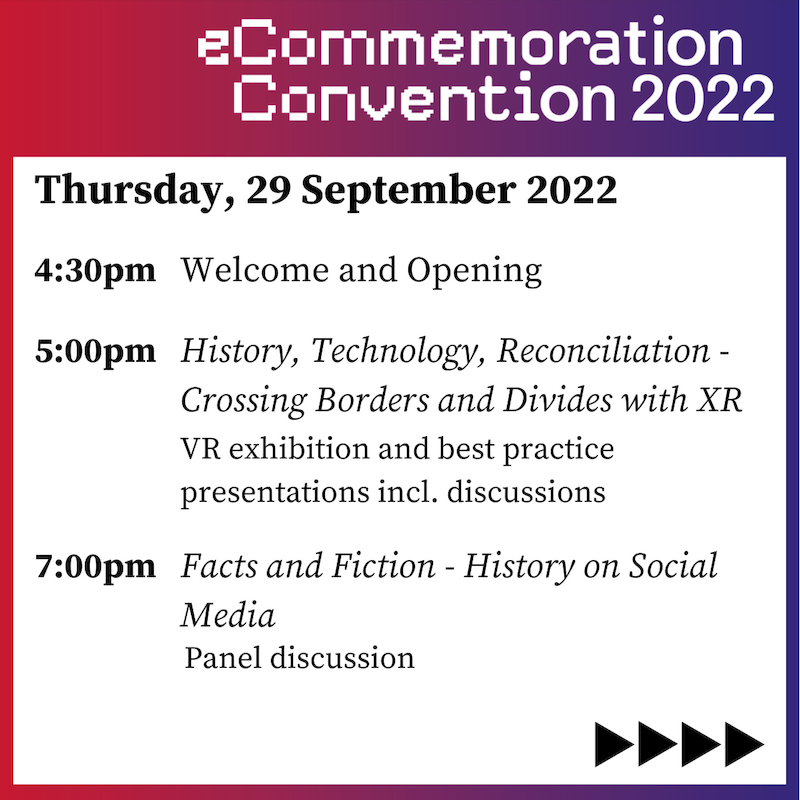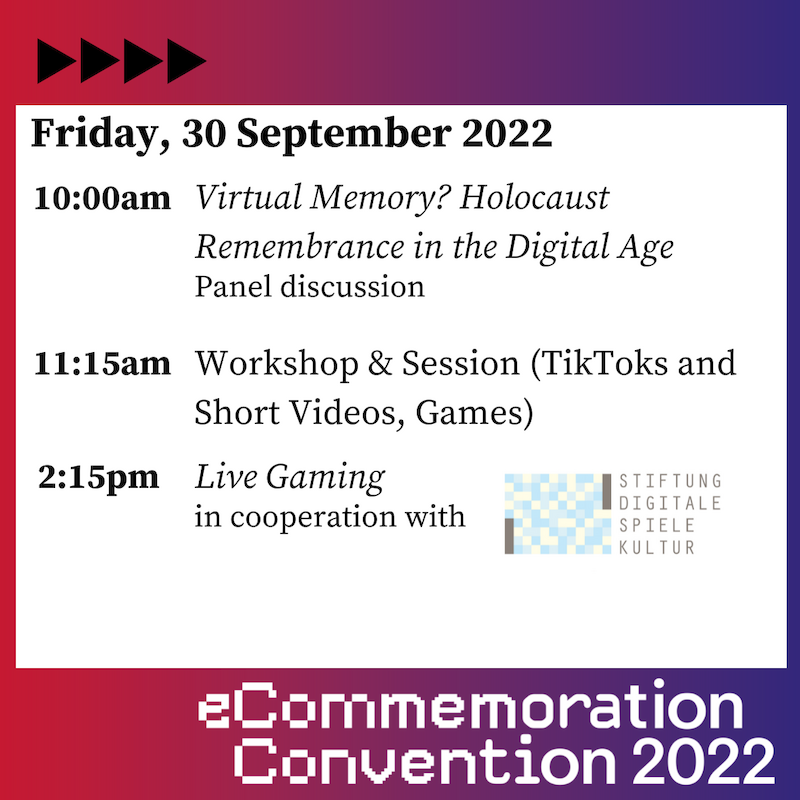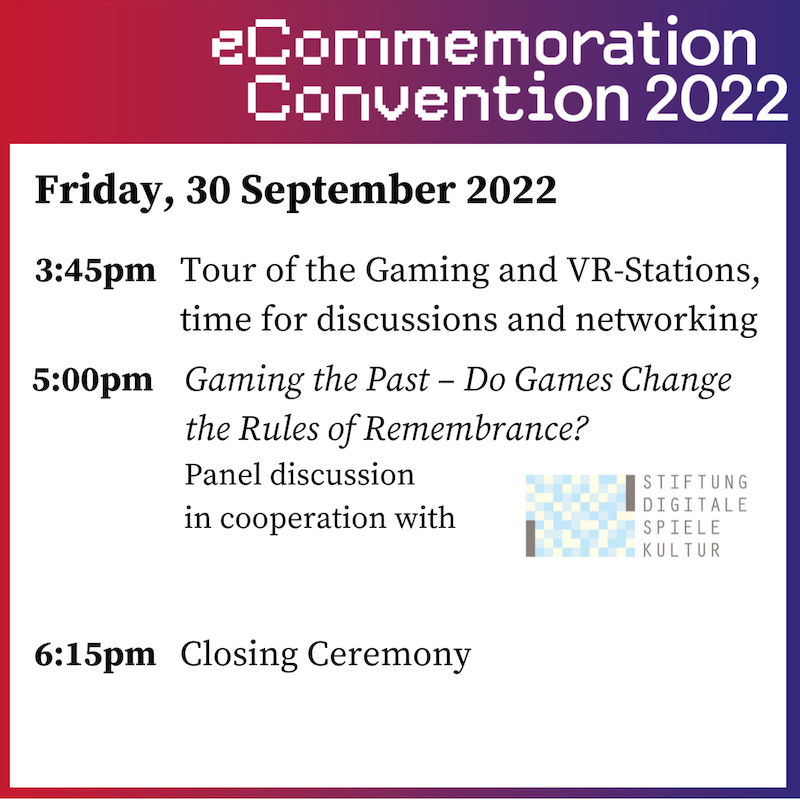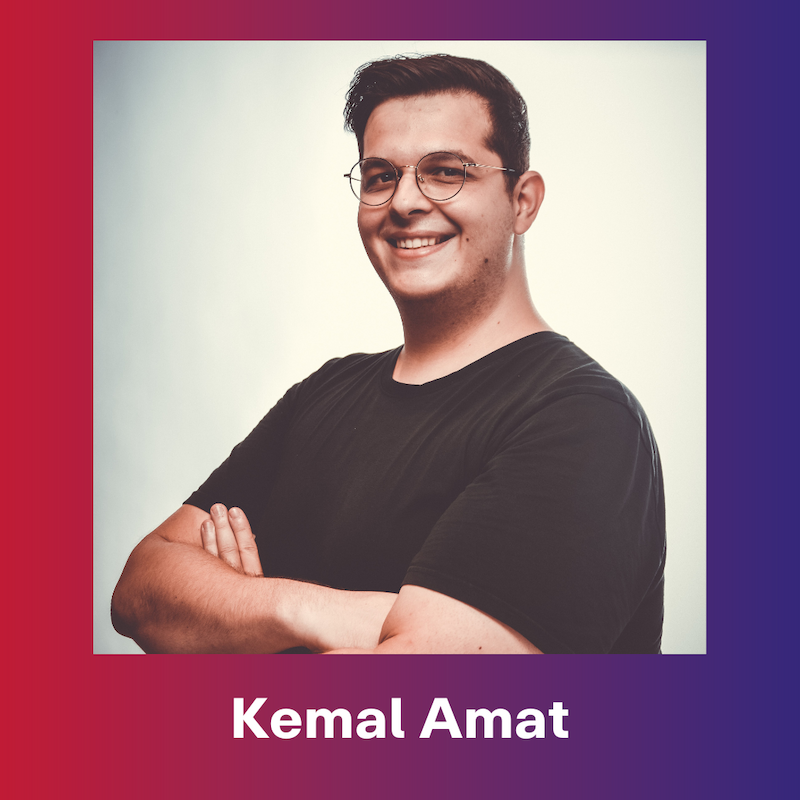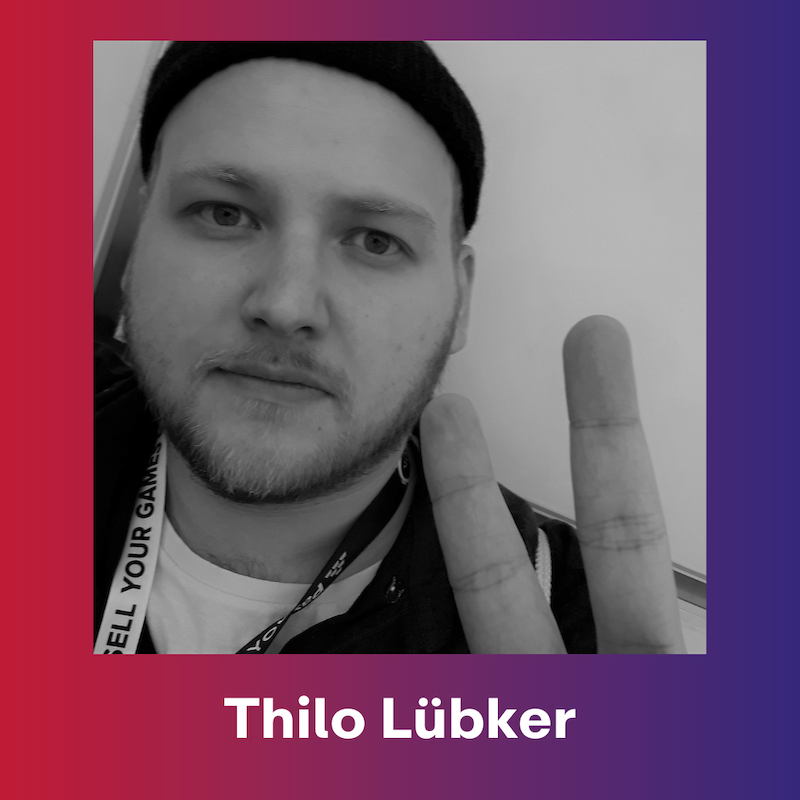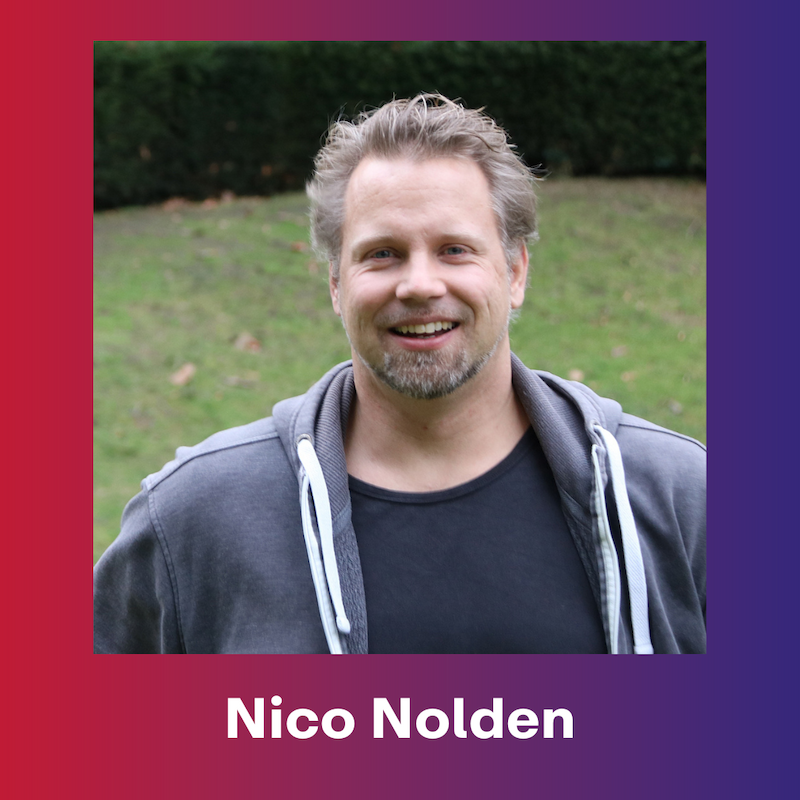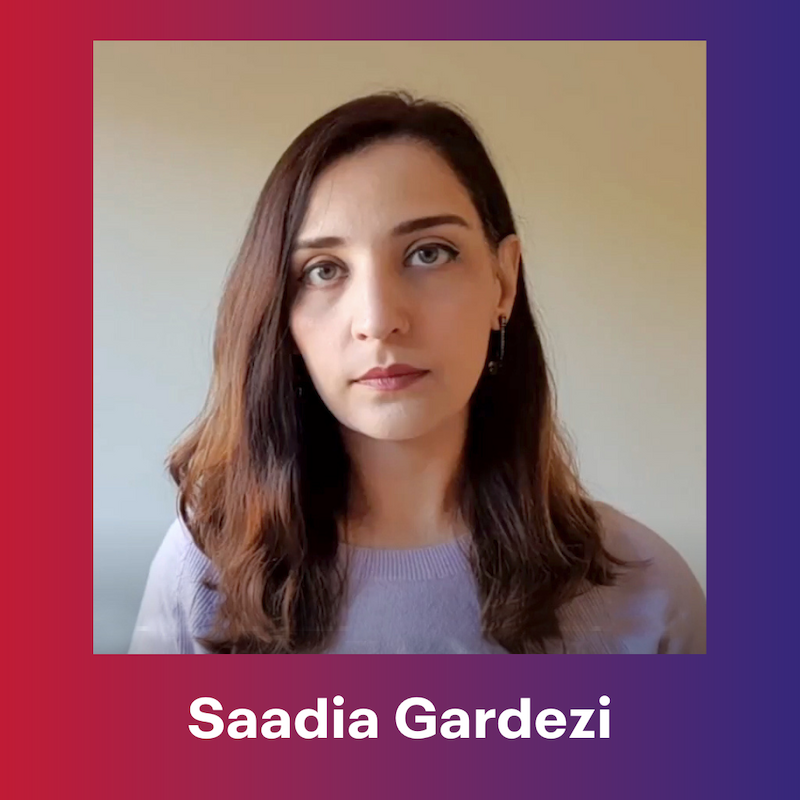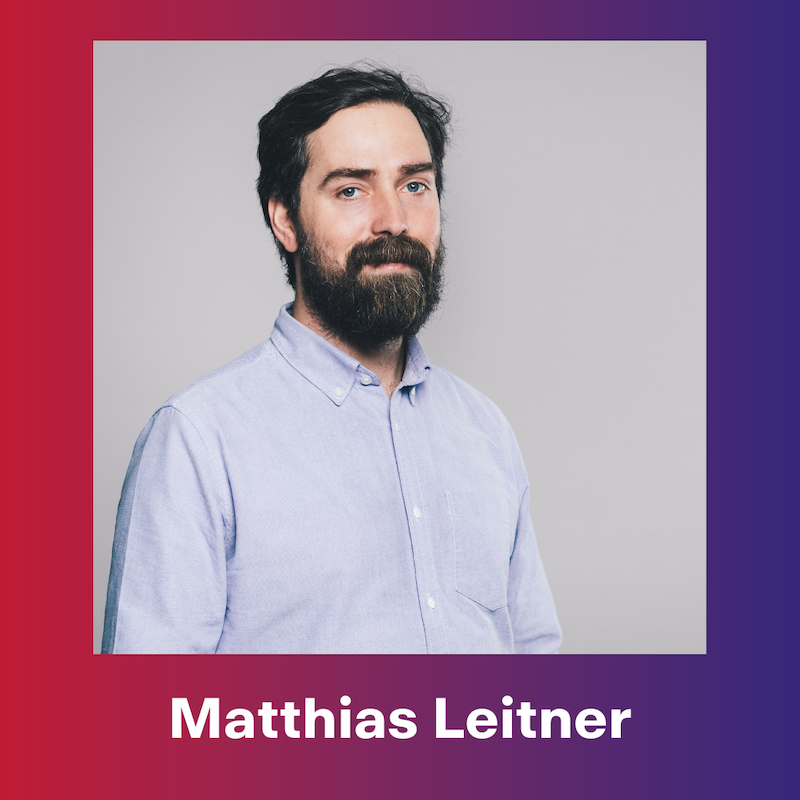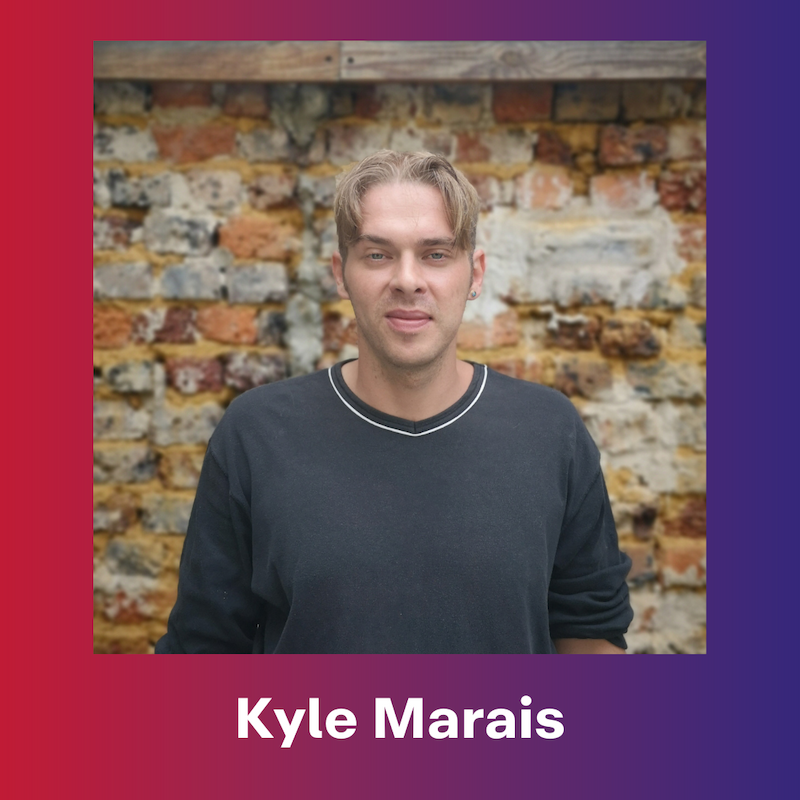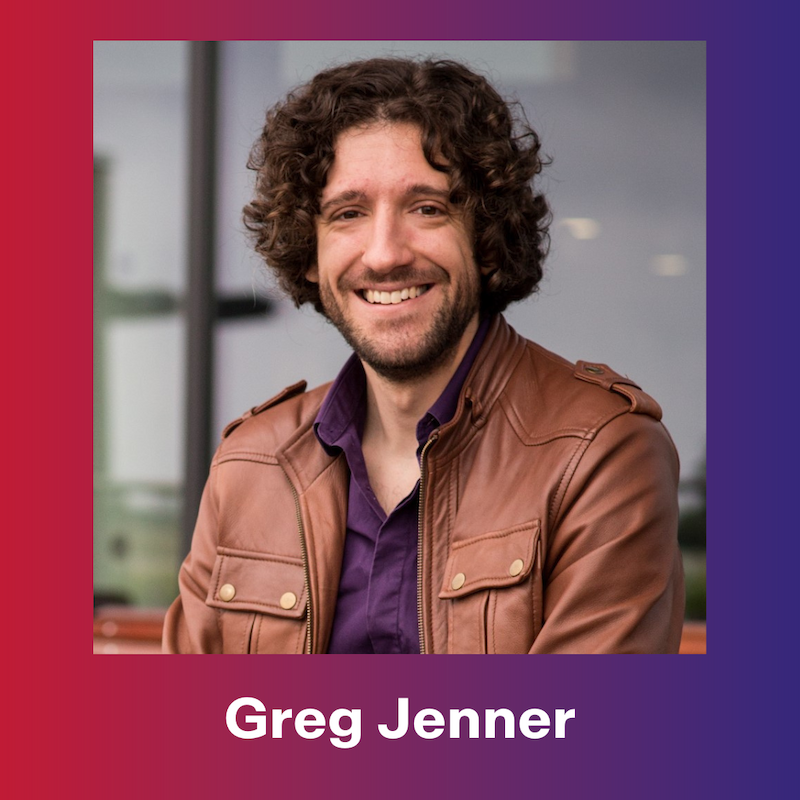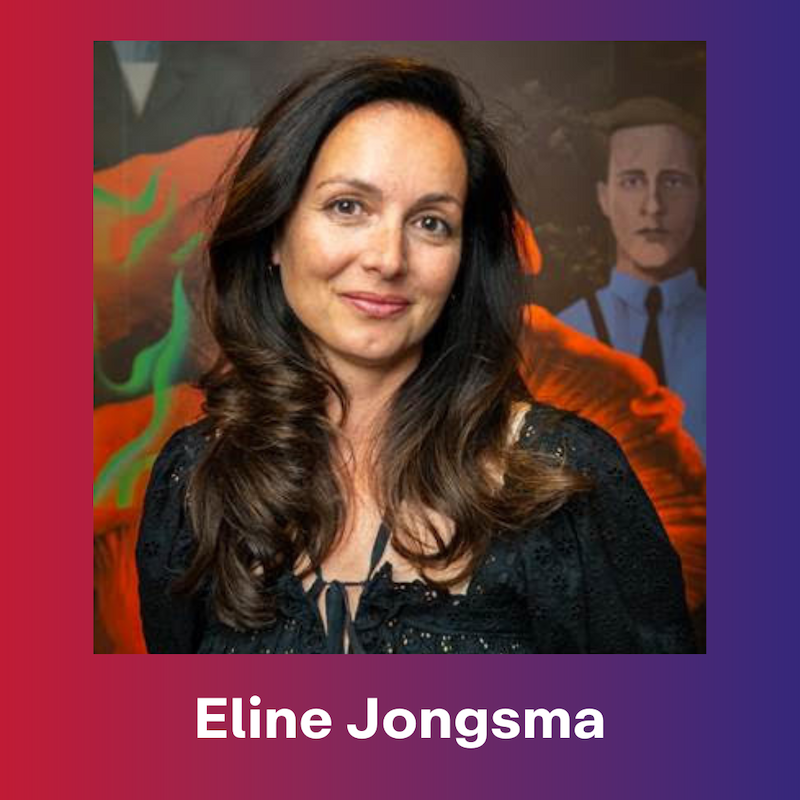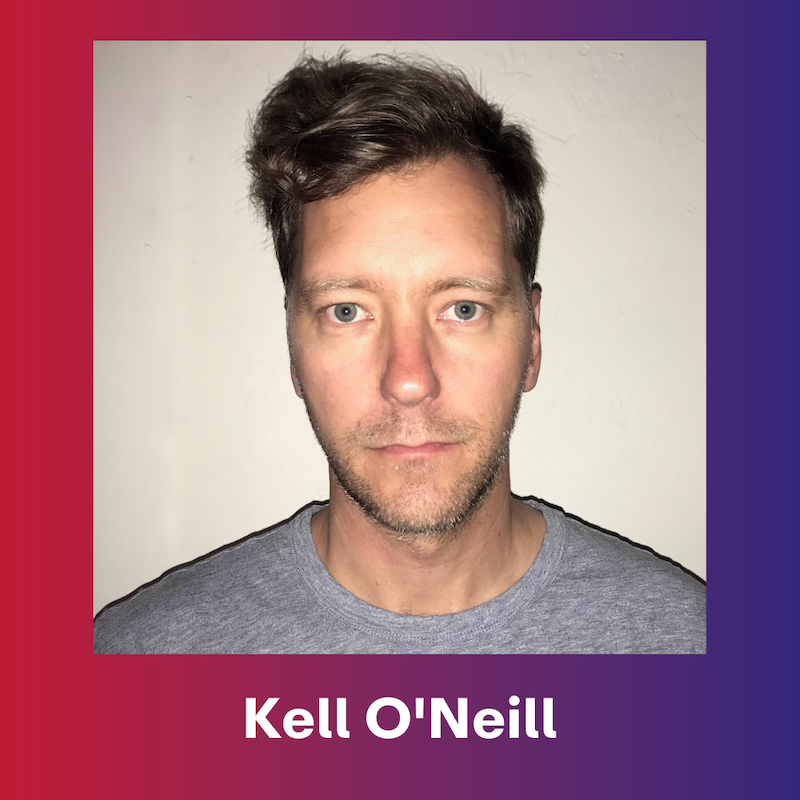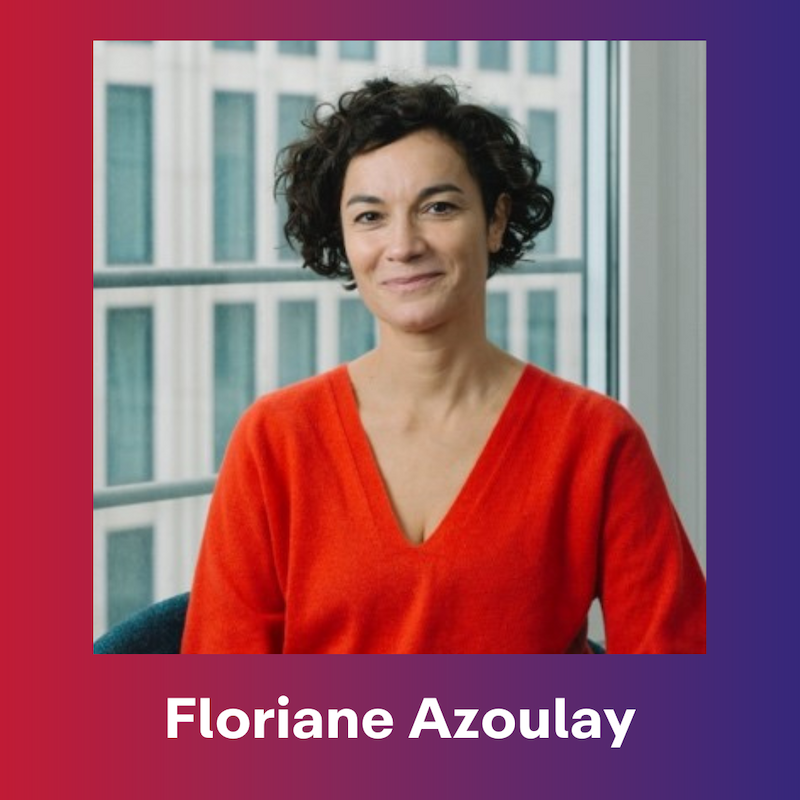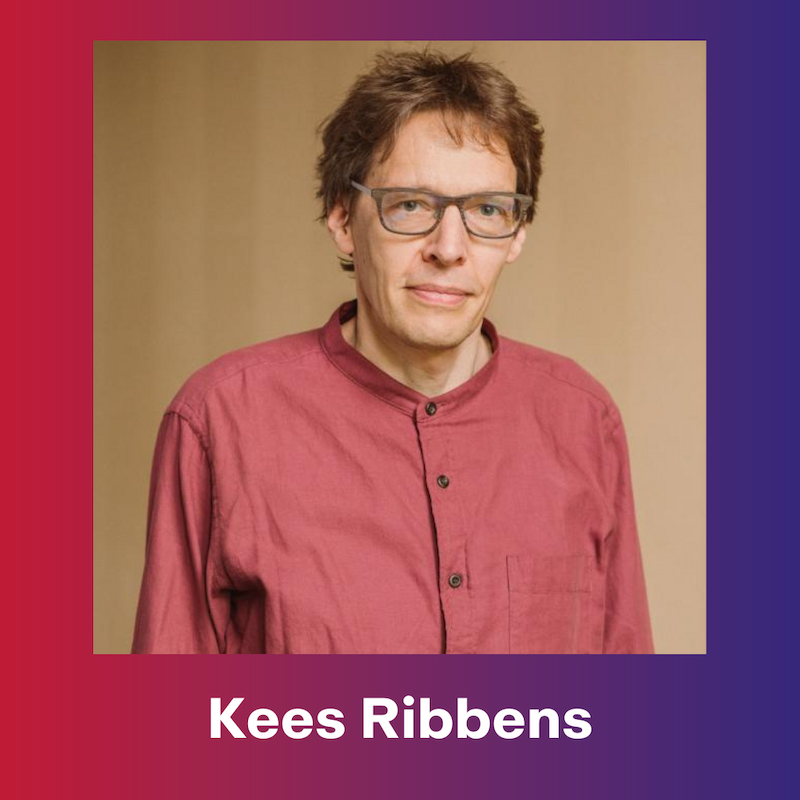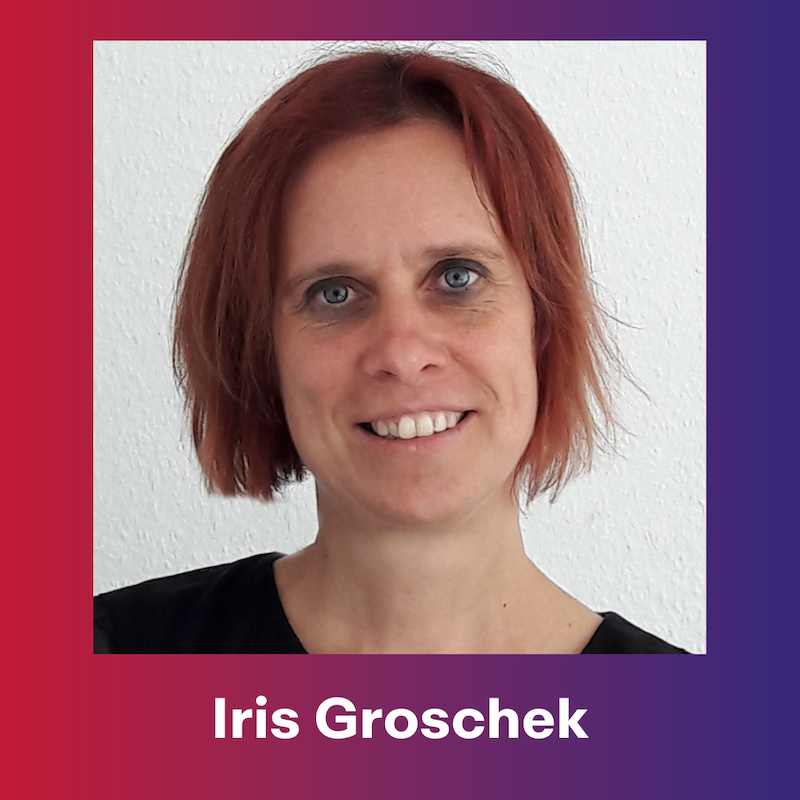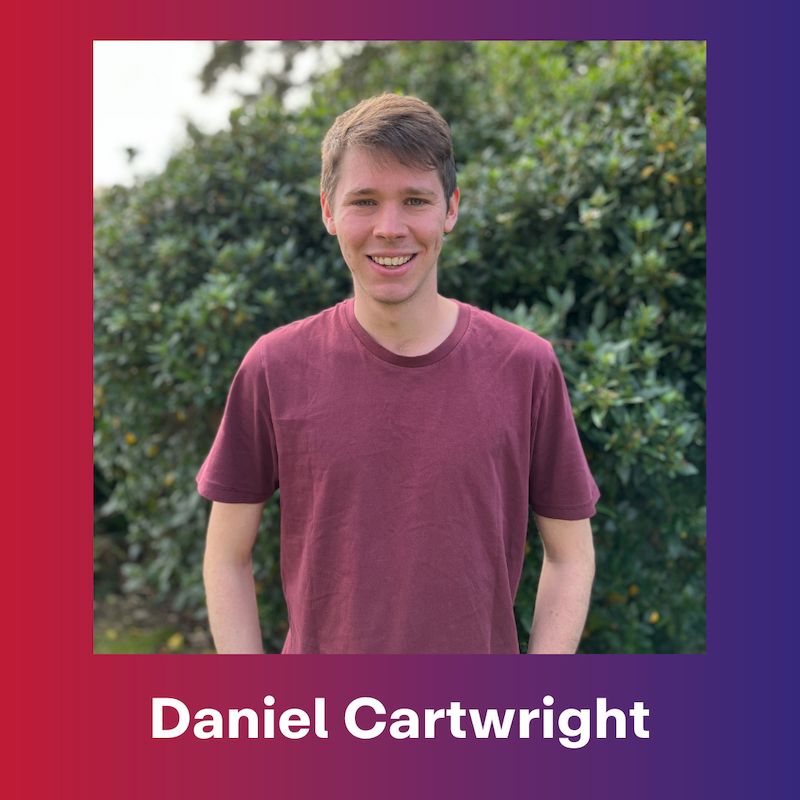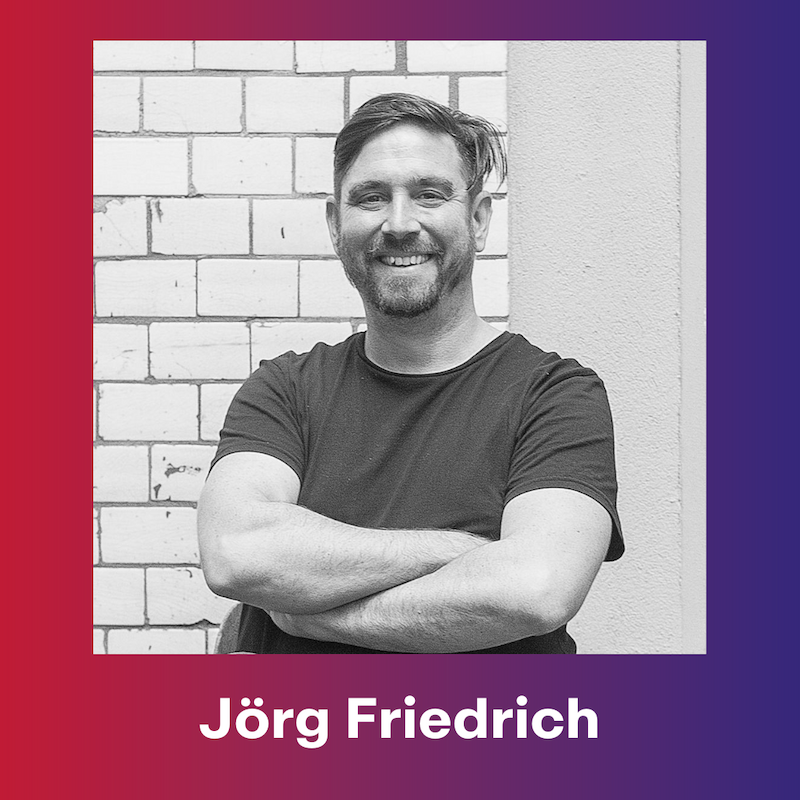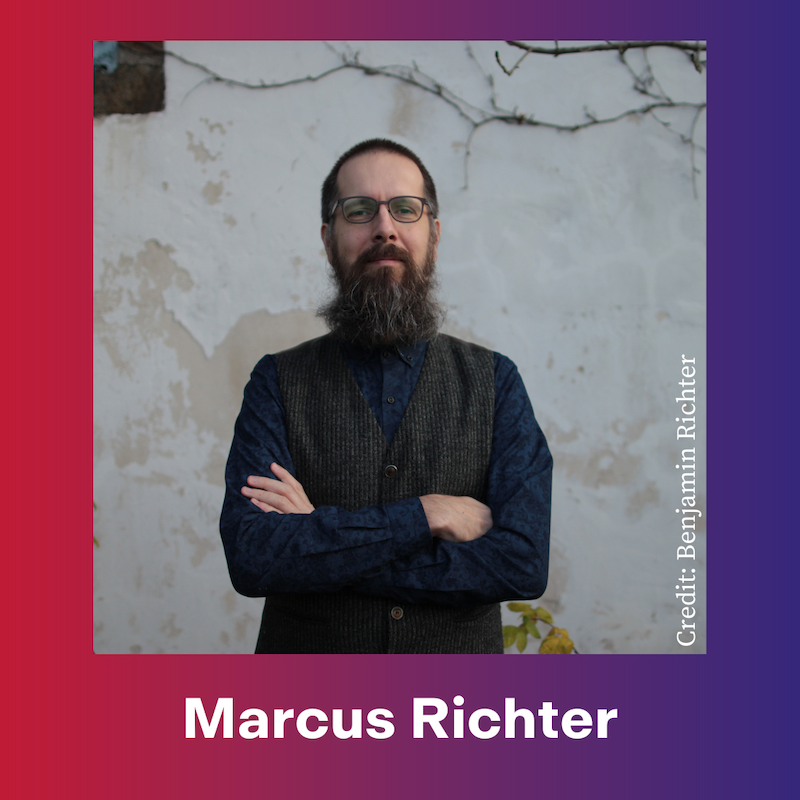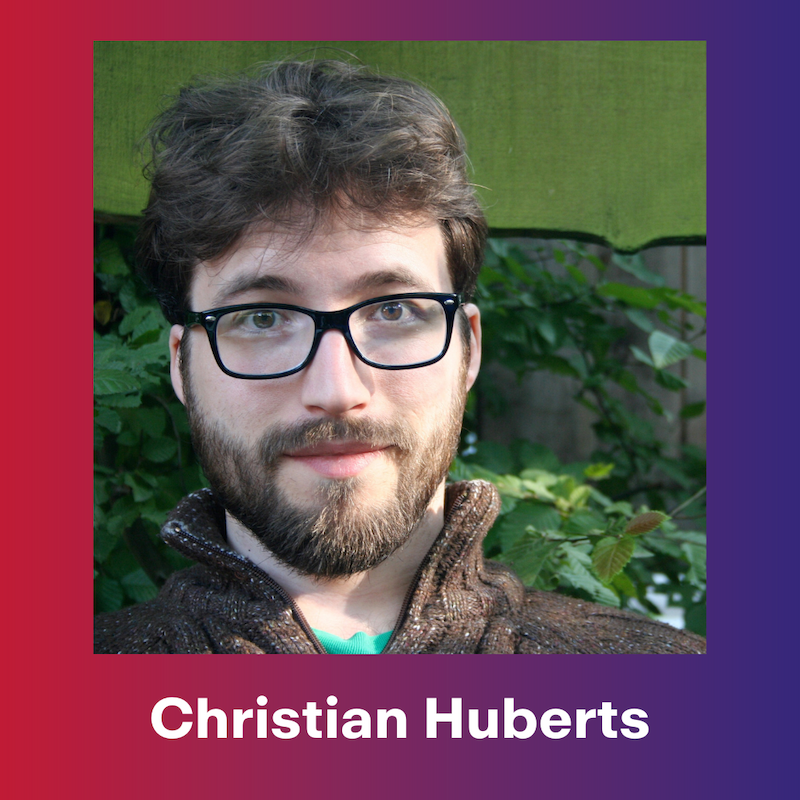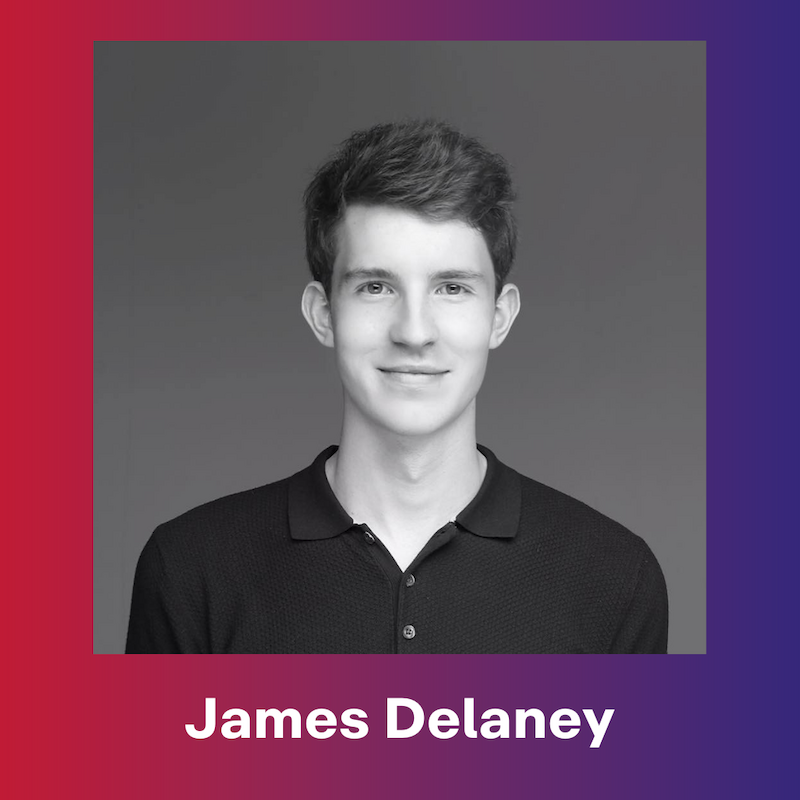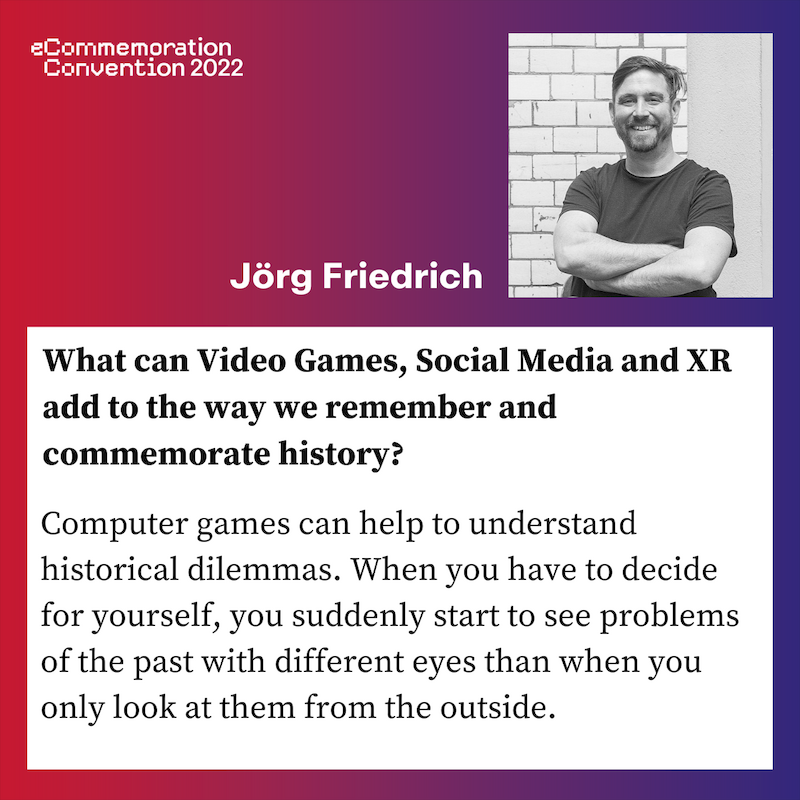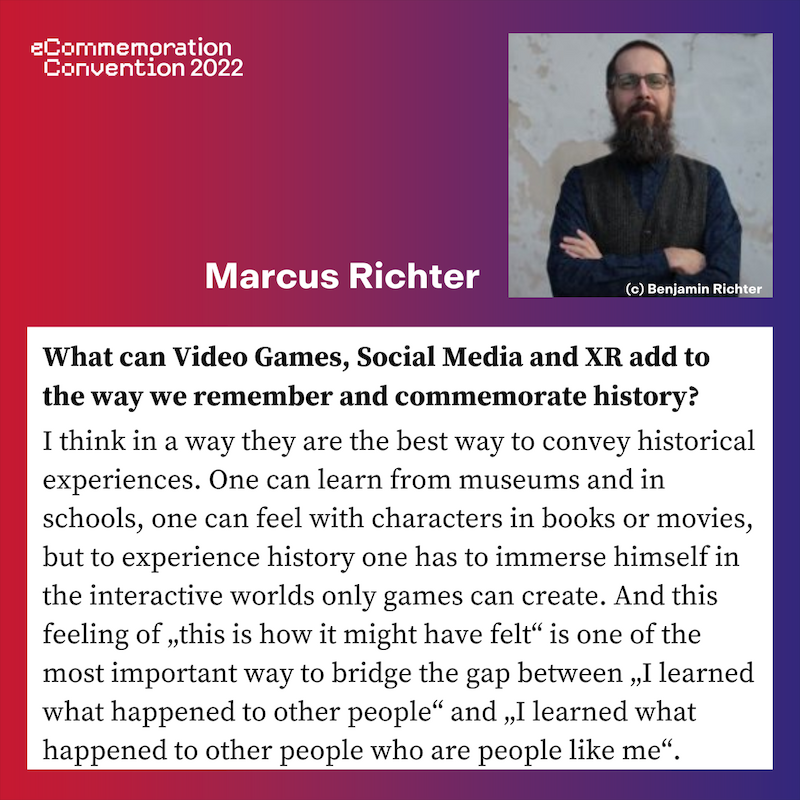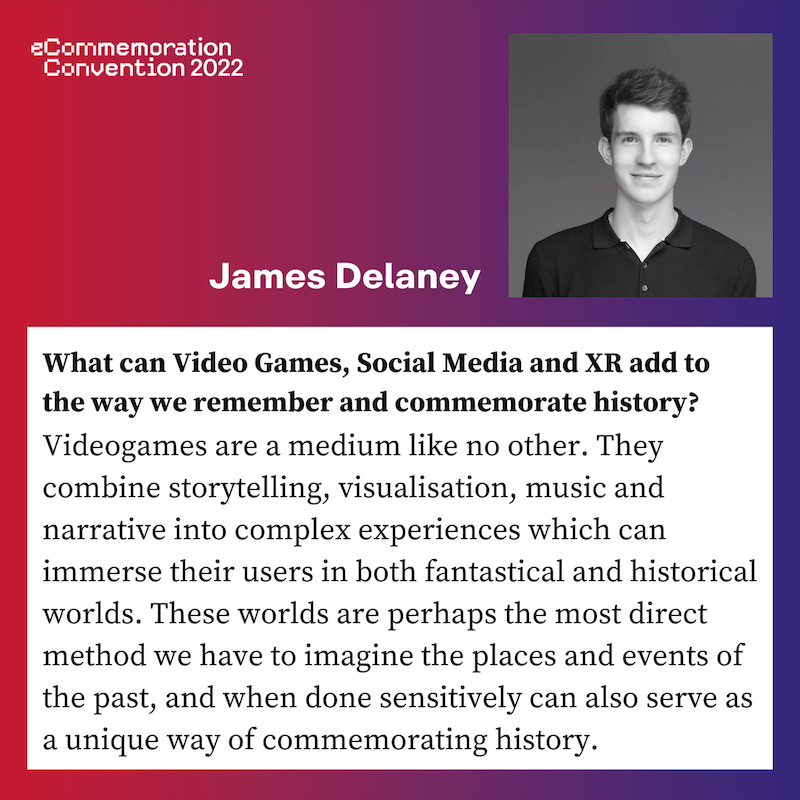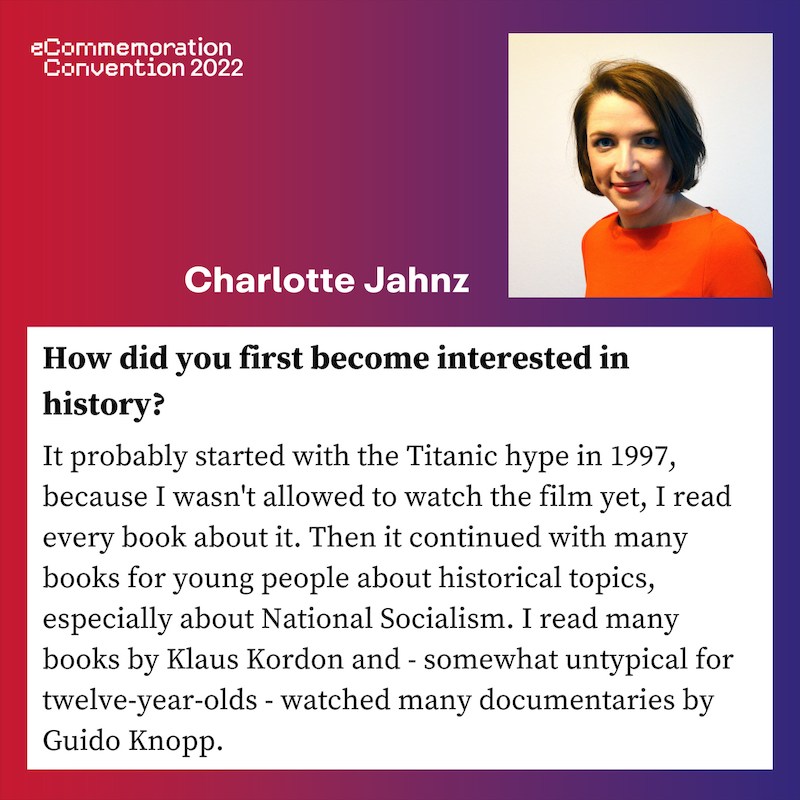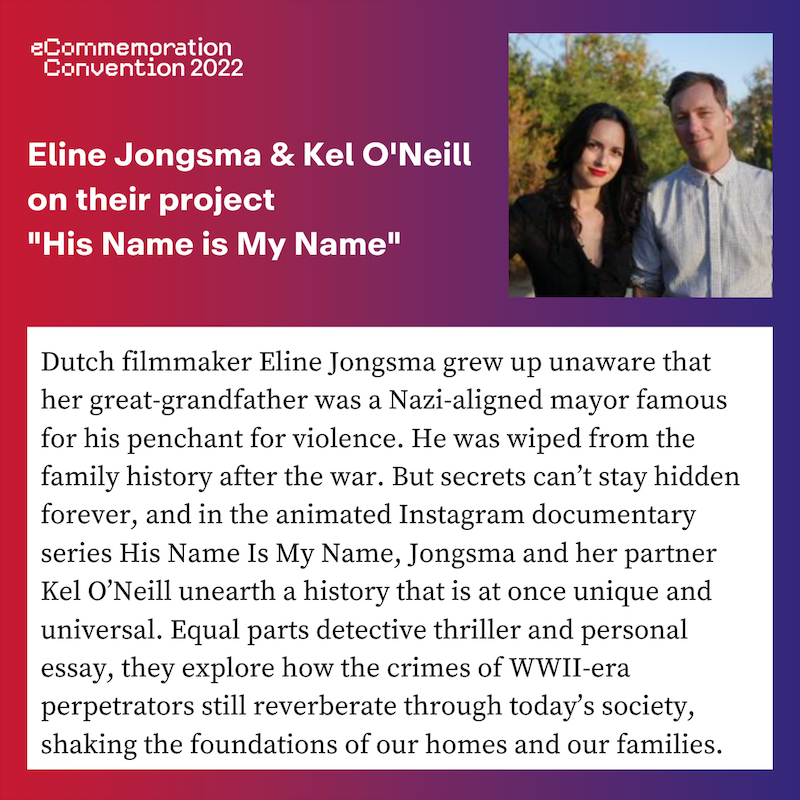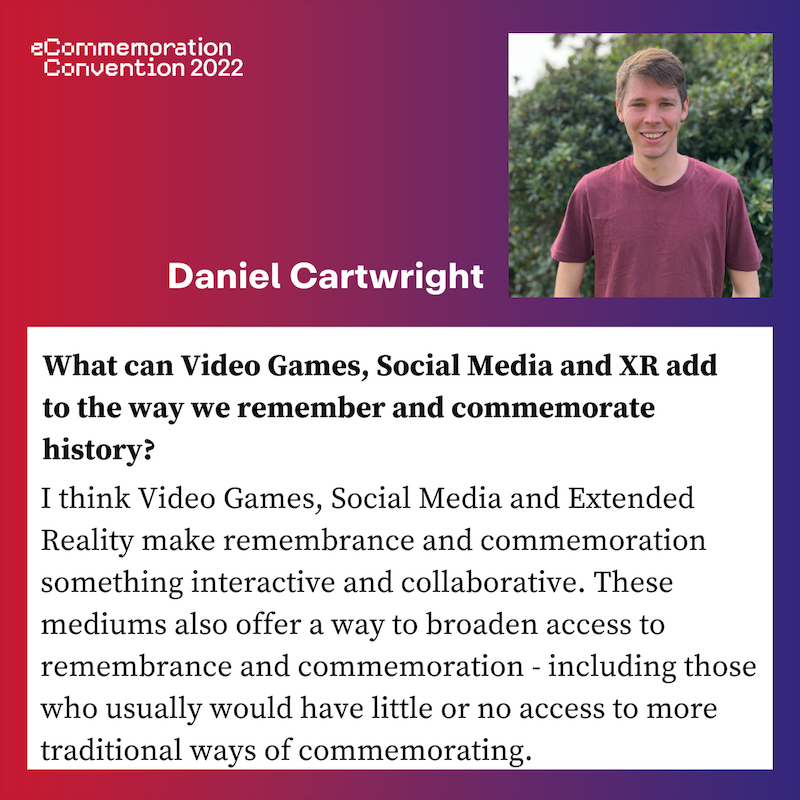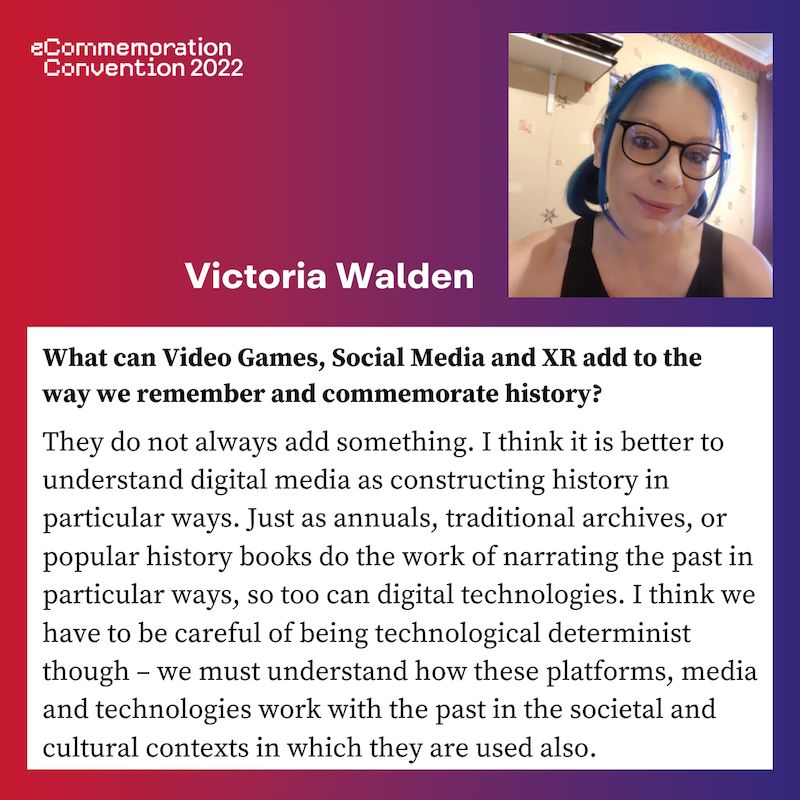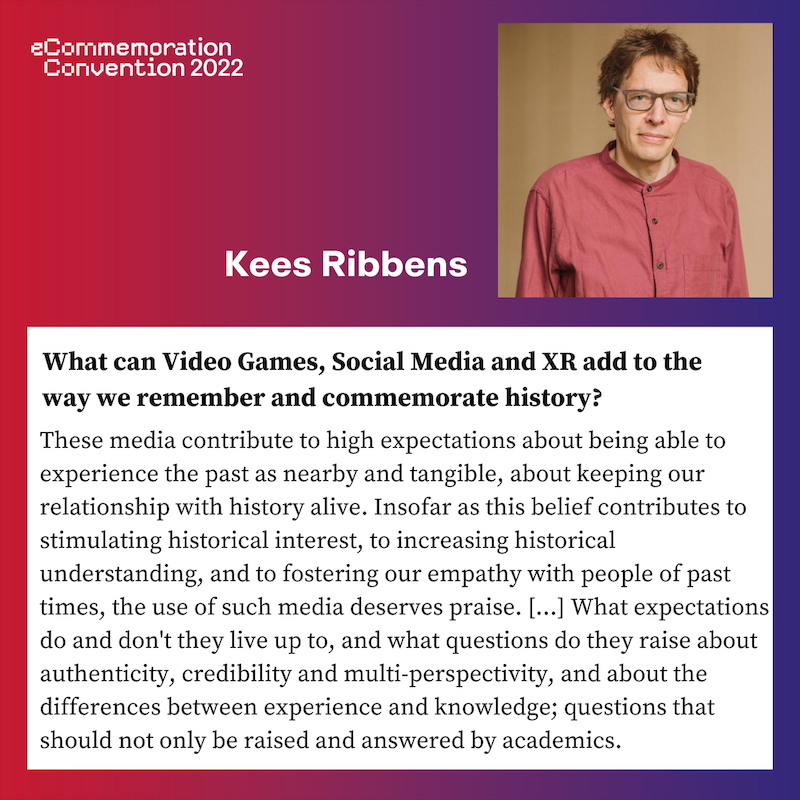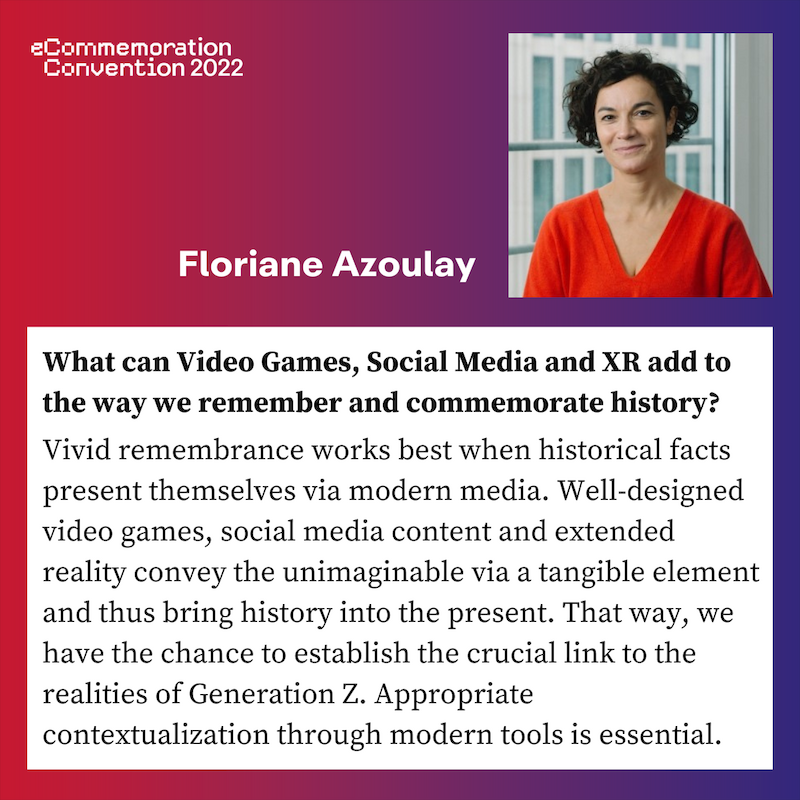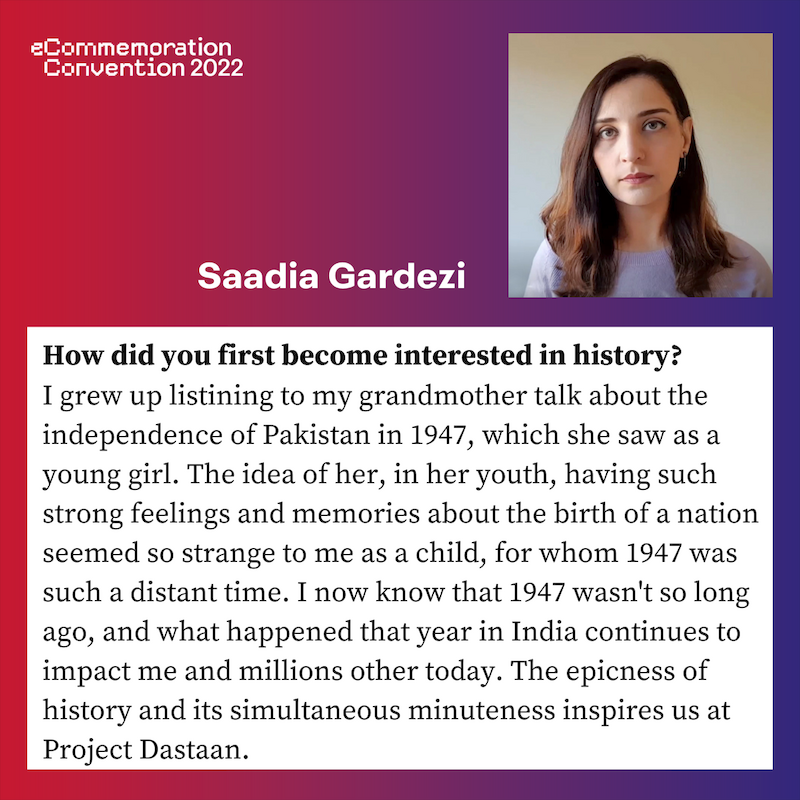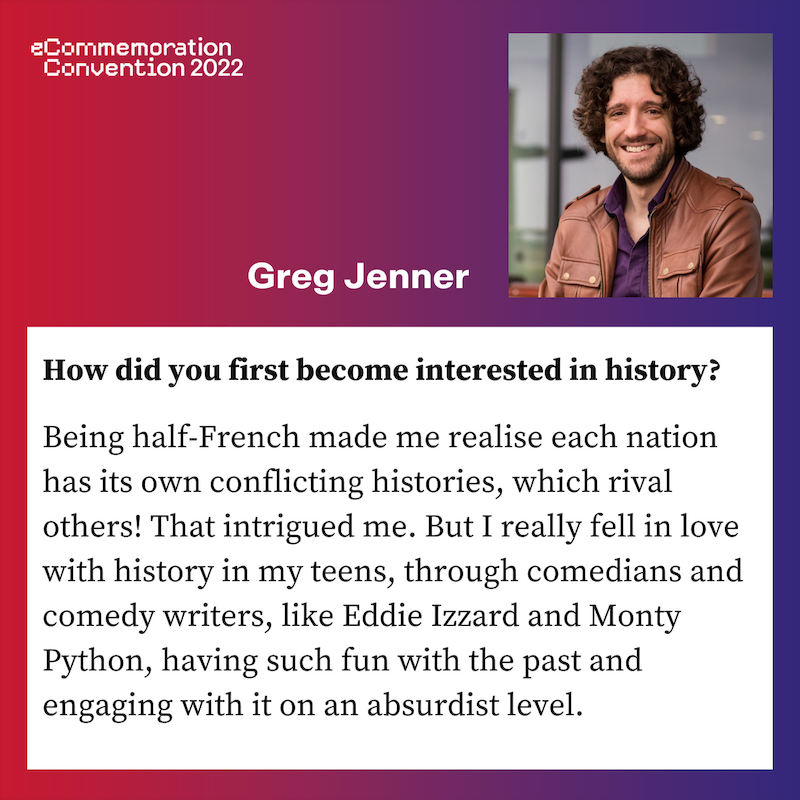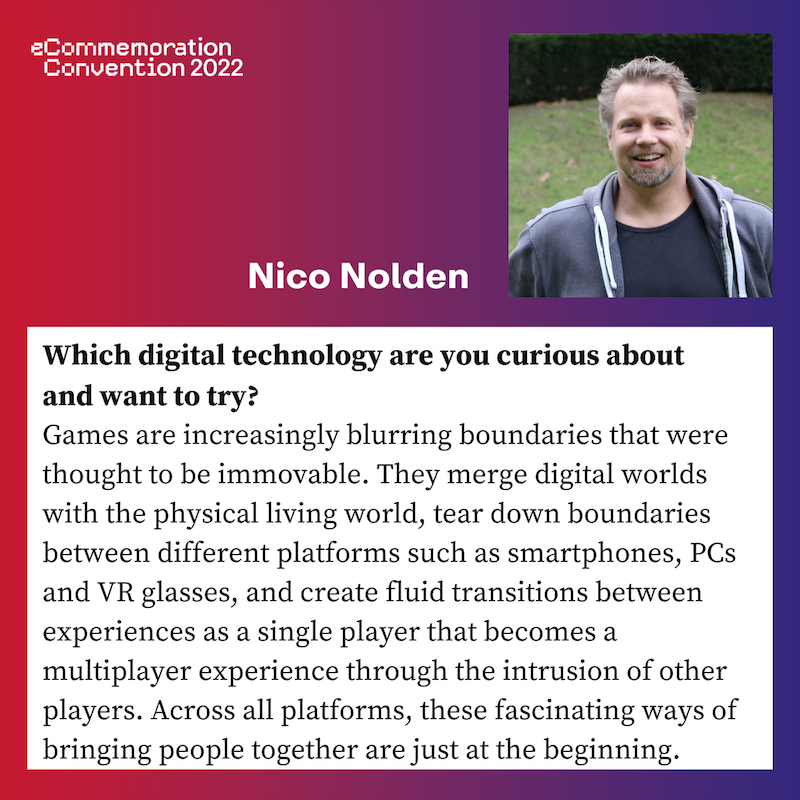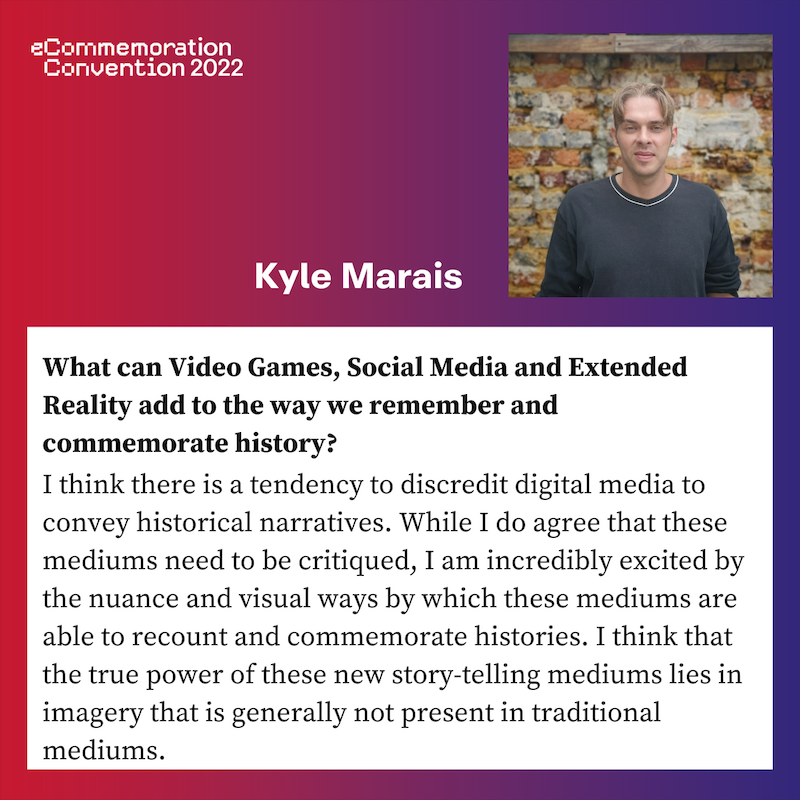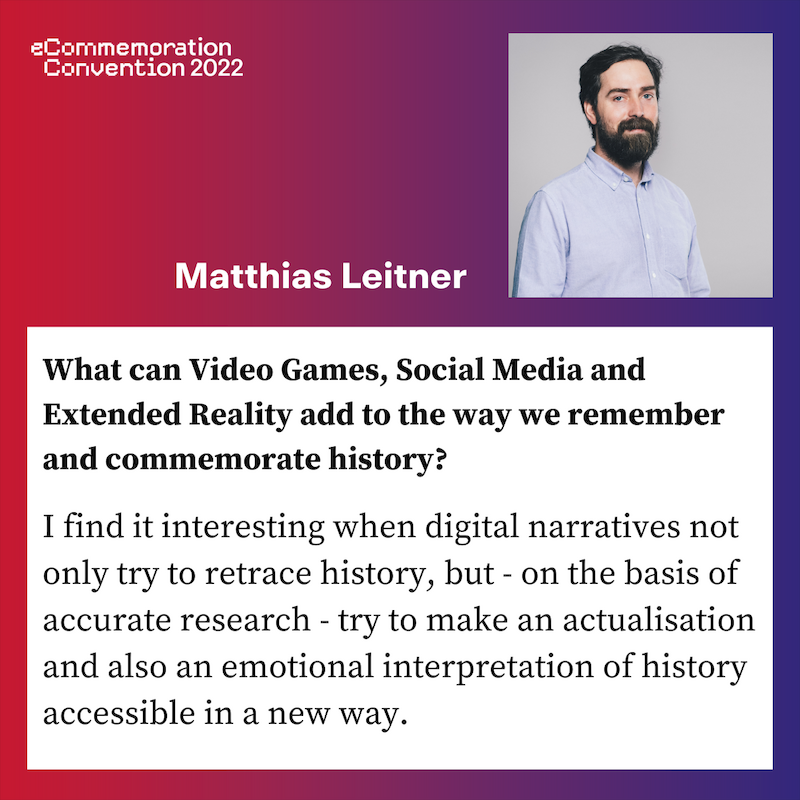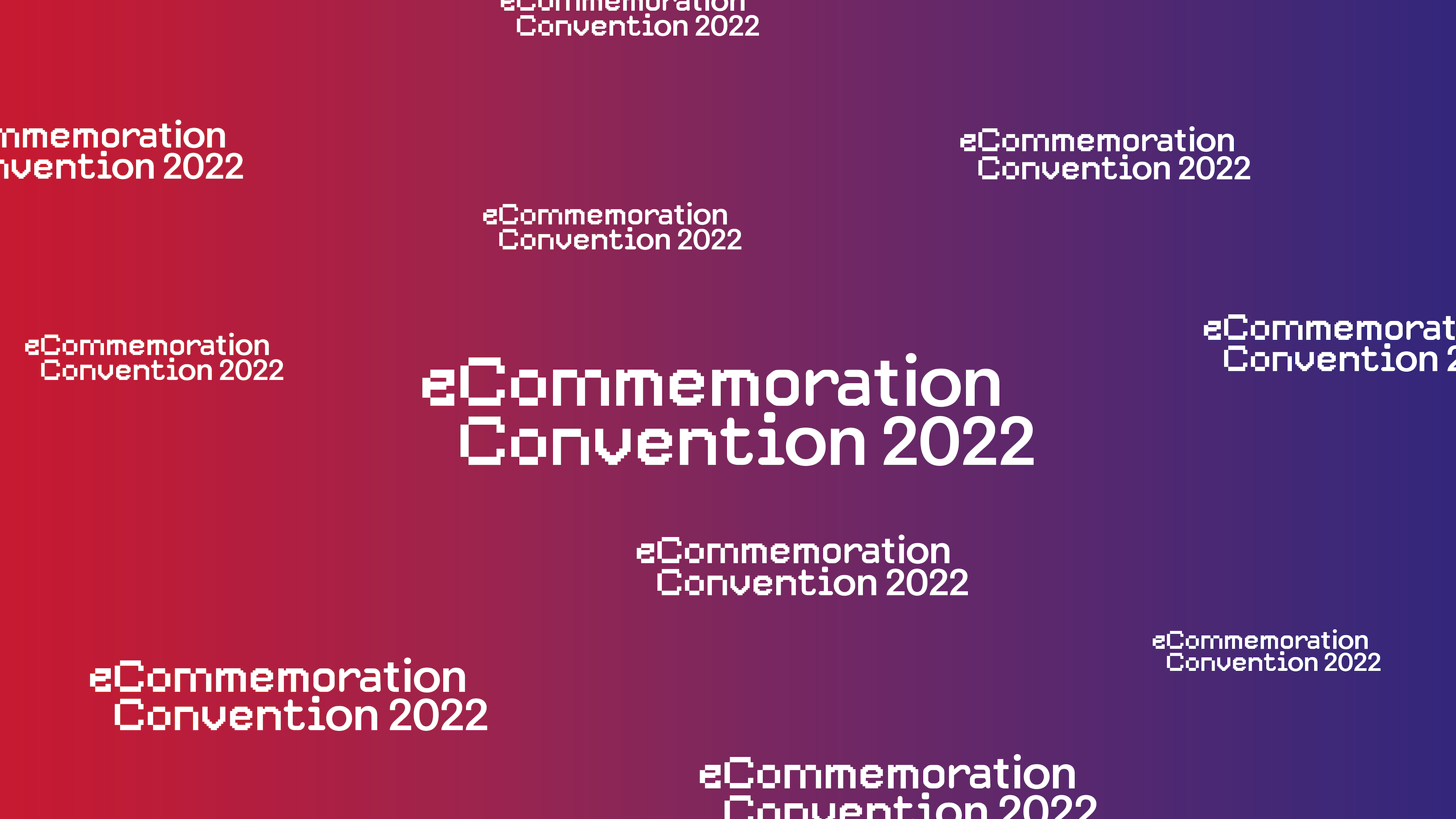
eCommemoration Convention 2022
In 2022, we again brought together international historians, memory workers, digital pioneers and creative minds for creative exchange and hands-on digital experiences.
This year’s eCommemoration Convention took place on 29 & 30 September 2022 at Design Zentrum Hamburg. In various panels, international participants with different perspectives, backgrounds and professions debated how digitalisation is redefining history. To complete this two-day event, workshop formats allowed attendees to gain hands-on experiences. Digital guests were welcome to join our livestream.
The section „Session Details“ provides information on all panels, workshops and sessions as well as recorded videos of the discussions.
Programme Overview
Retrospect eCommemoration Convention 2022
History is not only studying the past or asking the question what happened when and who did what. Equally, memory is not only a statue, a monument or museum. History and memory are so much more. They are personal, change over time and influence our present. And they are everywhere. History and memory are in our physical surroundings, but can also particularly be found in digital technologies. Various video games e.g. use history as a backdrop, or as a playground even.
With regards to social media, we can find fictionalised accounts by historical figures on Instagram, participate in TikTok challenges and follow countless discussions on Reddit about the past. And even Augmented and Virtual Reality applications allow users to immerse themselves in history.
And this is what eCommemoration is about – memory culture in the digital age.
With our project eCommemoration we address new questions about history, inspired by new technologies and new generations, in order to renew our understanding of the past. Our eCommemoration Convention brings together a wide variety of people, who shape how we perceive history today: from researchers, memory workers at museums and memorials, journalists, artists, to game and XR designers. Our yearly convention strives to bring all these disciplines together to learn from each other, work together, discuss and share diverse stories and perspectives of history – all in order to shape democratic and participatory memory culture.
Panels, workshops, explorations
50 participants from 15 countries and various fields of expertise came together to experience our two-day event at Design Zentrum Hamburg. The panels livestreamed online reached additional viewers.
On site, the convention started with an activity session: three different XR exhibitions about „History, Technology, Reconciliation – Crossing Borders and Divides with XR“. Here our speakers not only presented and discussed their projects, but also enabled guests to immerse themselves in their histories. While Saadia Gardezi (Pakistan/UK) invited attendees to explore her animated Virtual Reality documentary “Child of Empire” dealing with the 1947 Partition of British India, Kyle Marais from South Africa presented his VR project „Subterranean Imprint Archive“ that examines Africa’s role in the nuclear bombs on Hiroshima and Nagasaki in 1945. Matthias Leitner from Germany on the other hand discussed his VR project on the 1972 Olympic Games and the Munich massacre.
The first day ended with a panel discussion on „Facts and Fiction“ – here we found answers to questions from how social media can contribute to sharing stories from marginalised voices to how social media deals with the blurry lines between facts and fiction. Public historian and broadcaster Greg Jenner (UK), documentary filmmakers Kel O’Neill and Eline Jongsma (US/Netherlands) and historian Charlotte Jahnz from Germany provided us with international views on the topic.
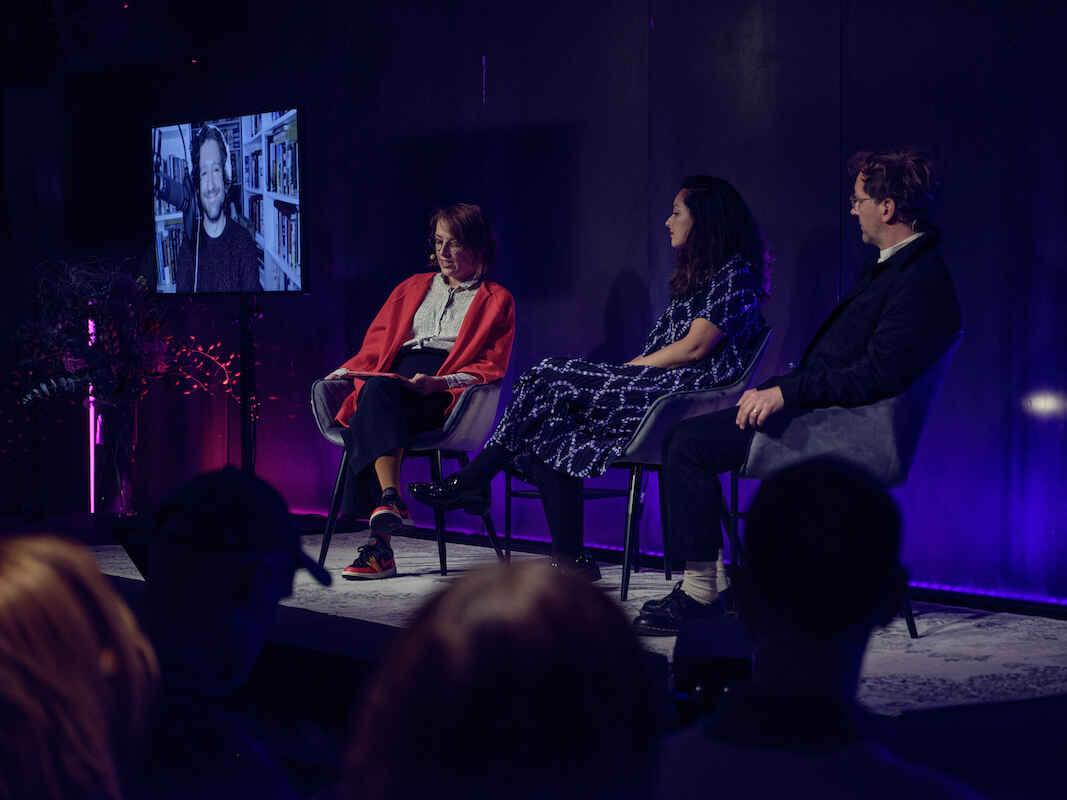
Photos: Benjamin Pichelmann 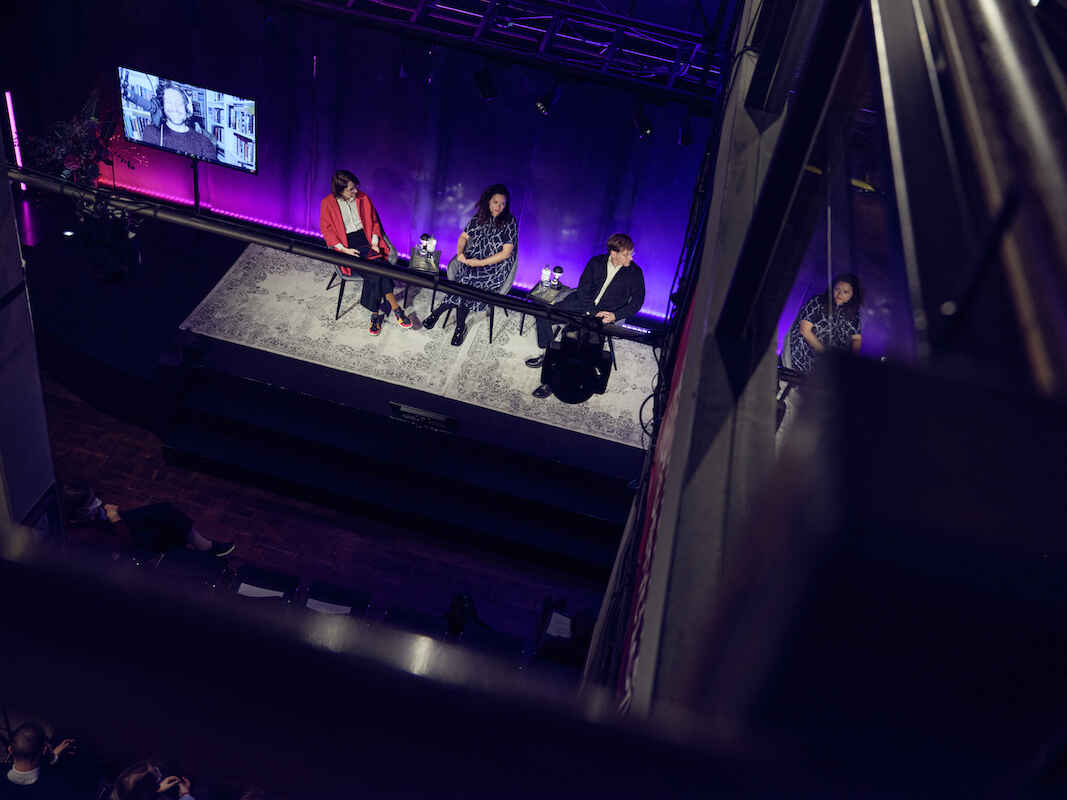
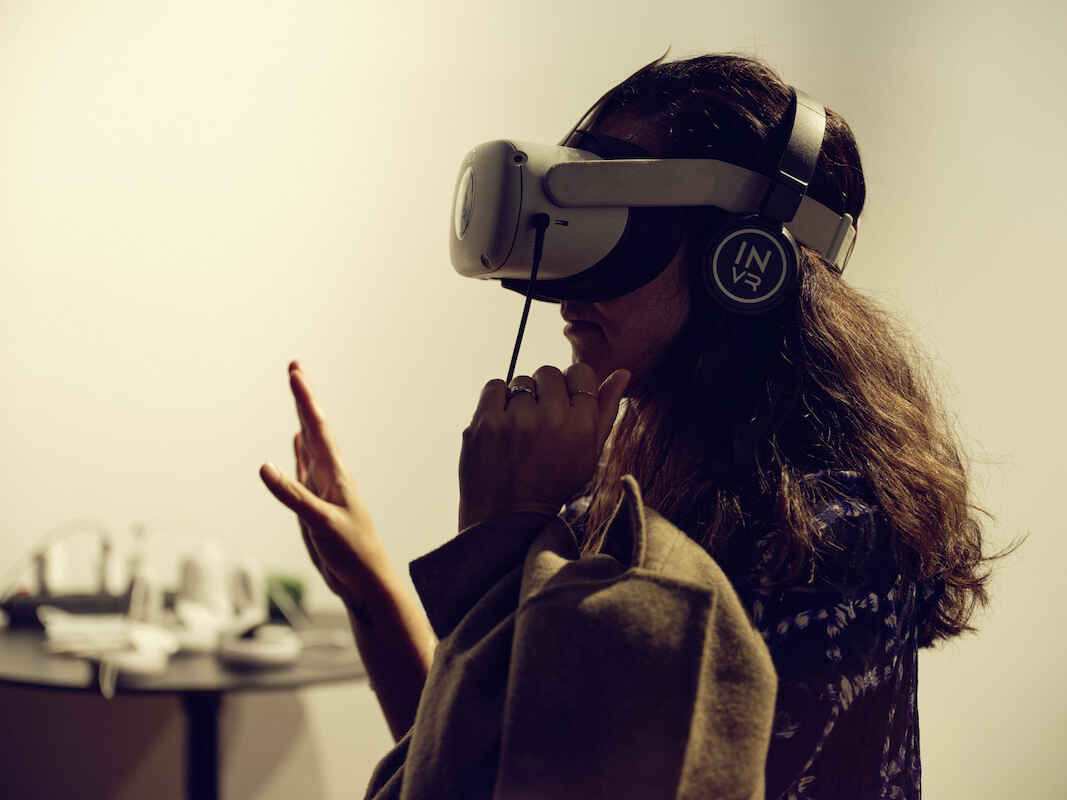
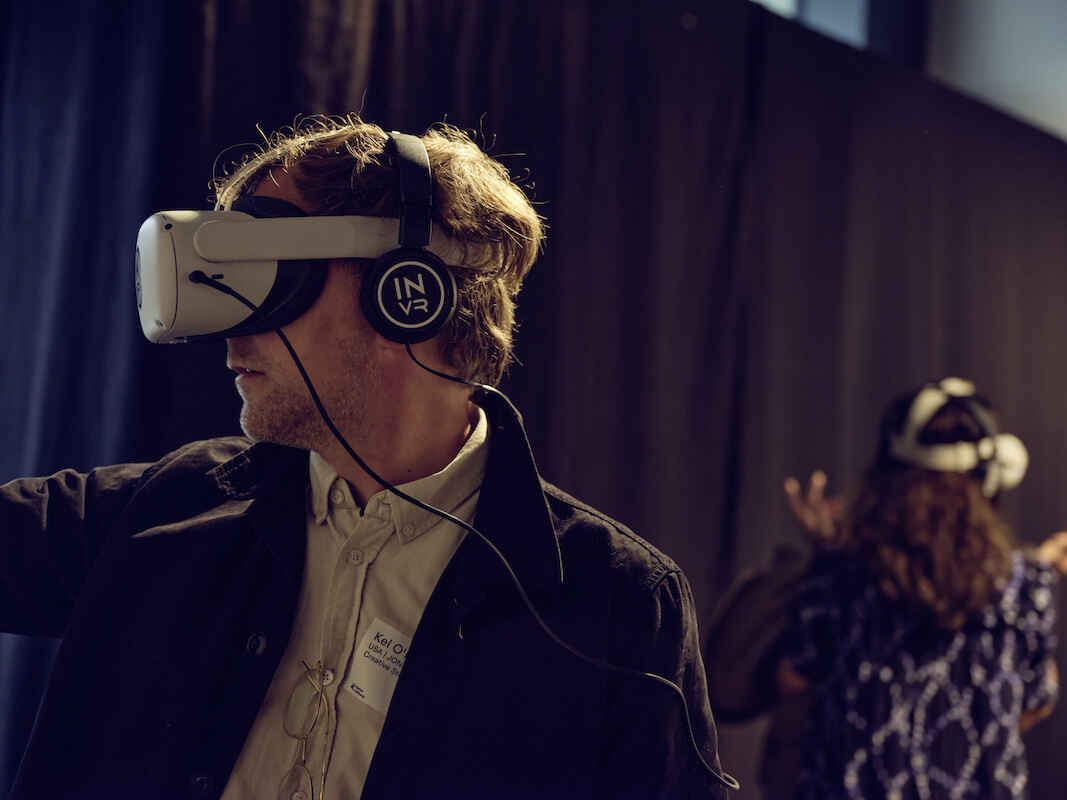
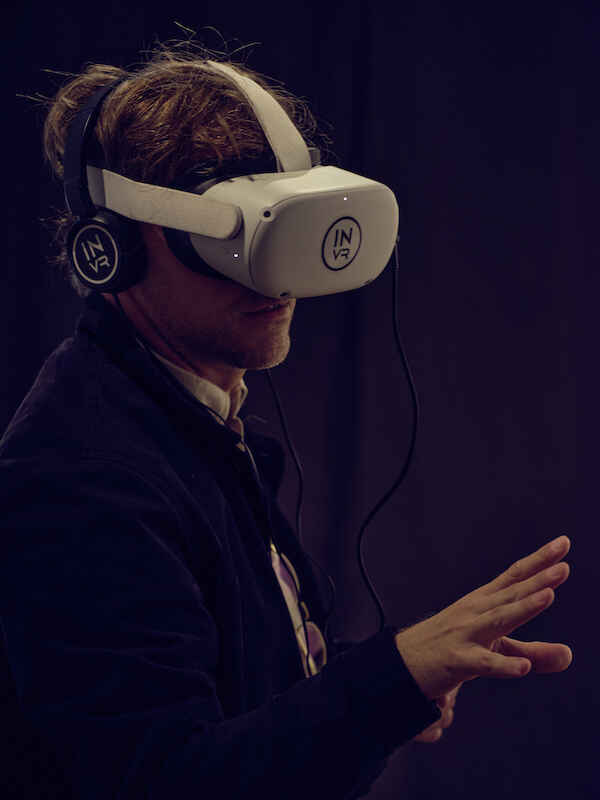
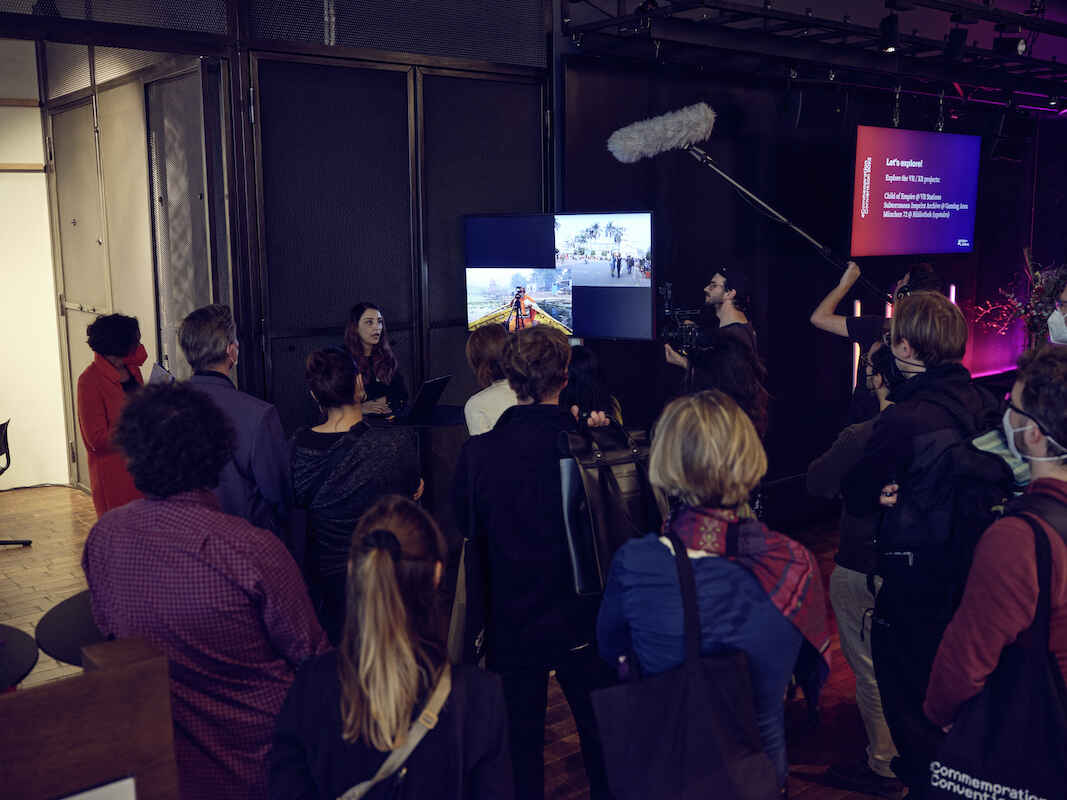
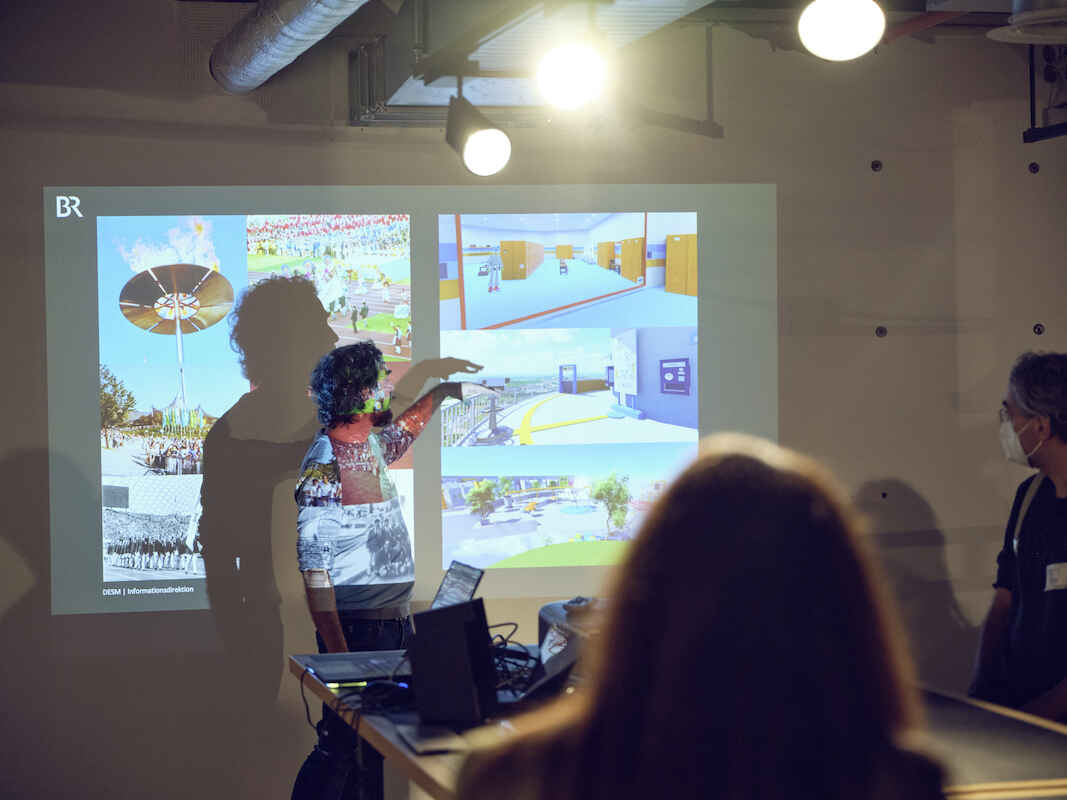
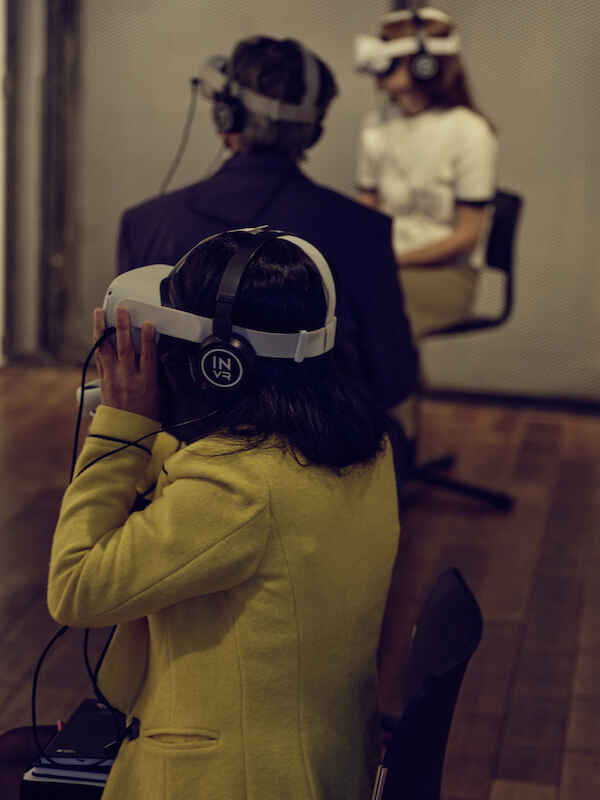
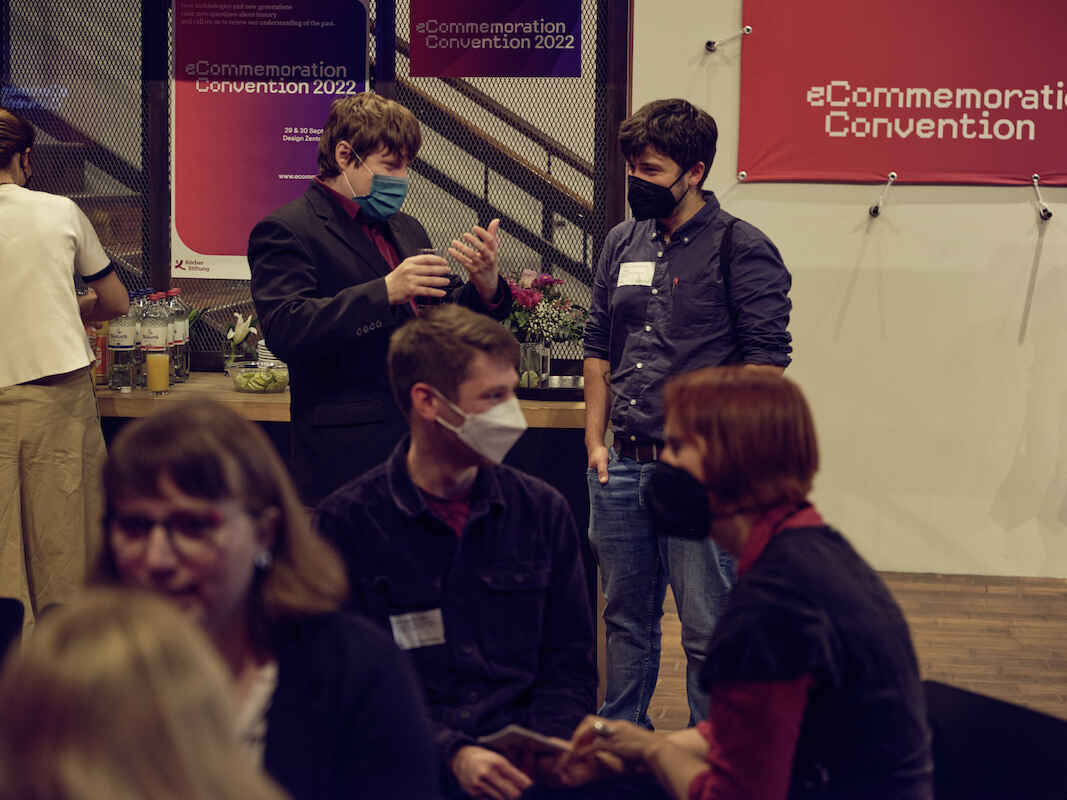
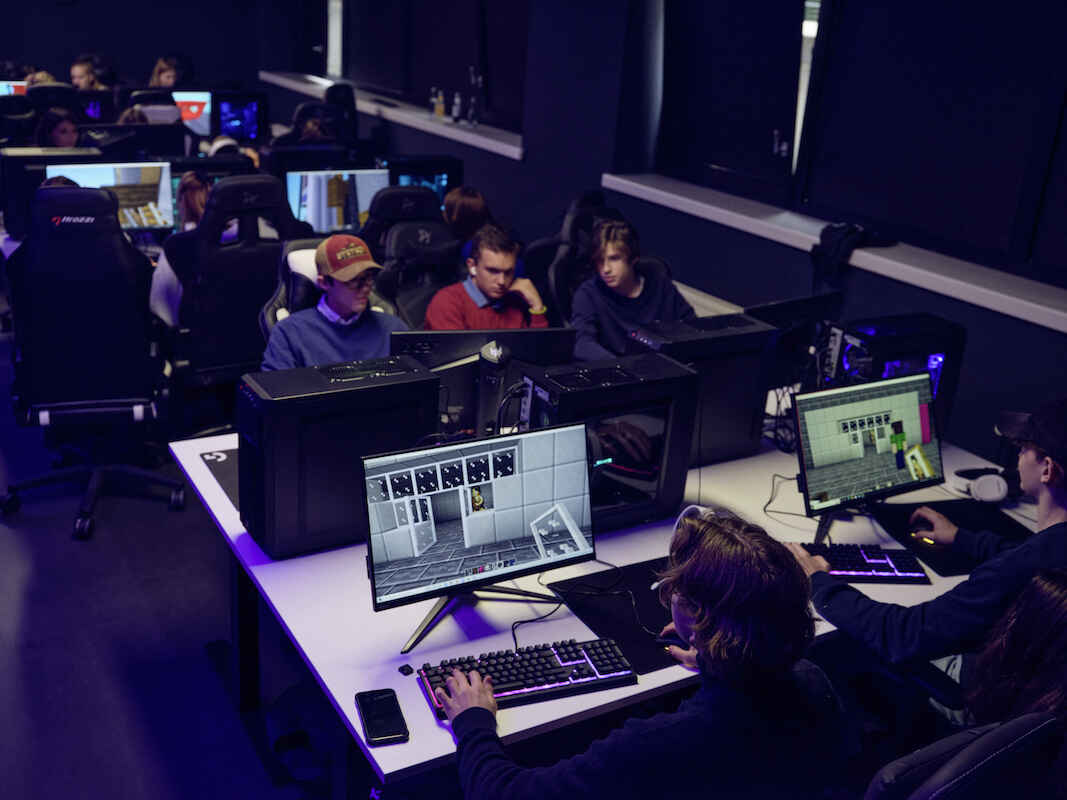
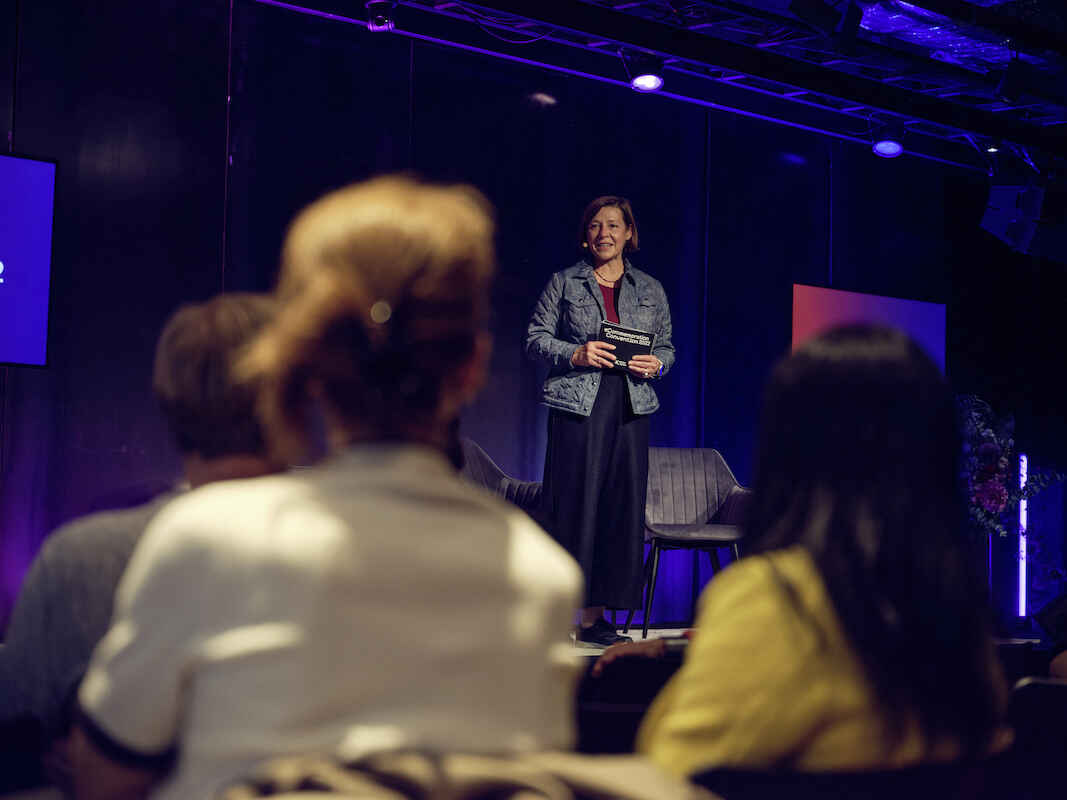
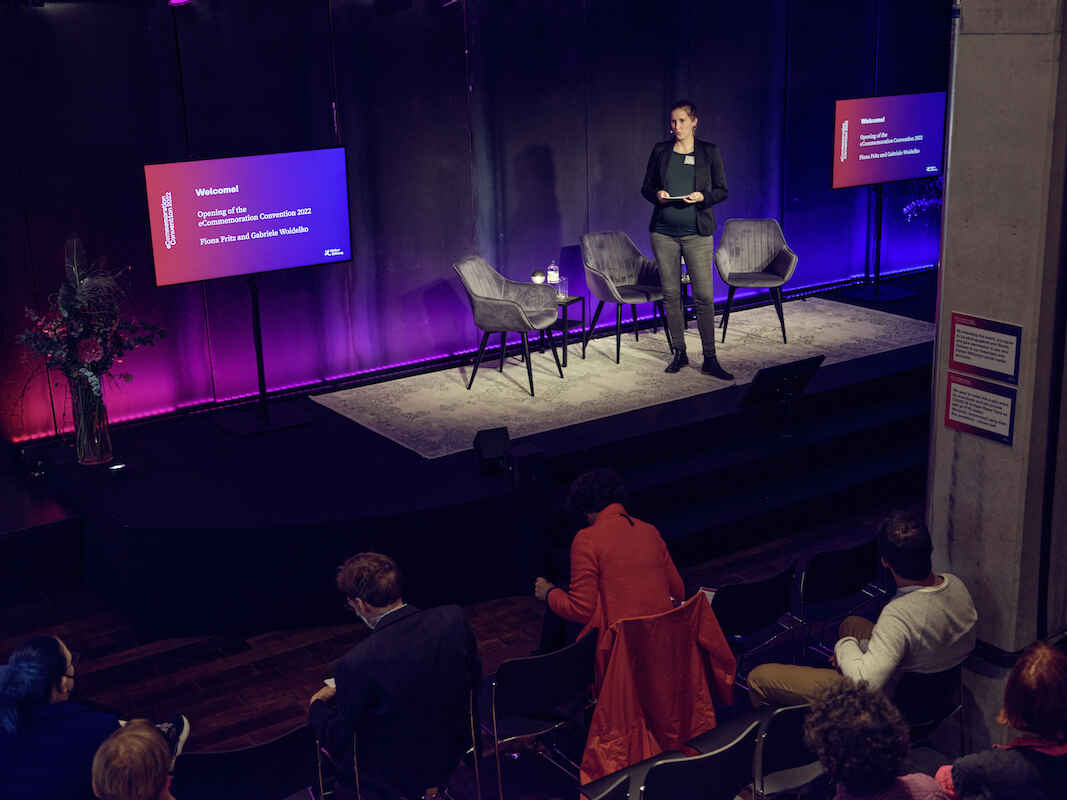
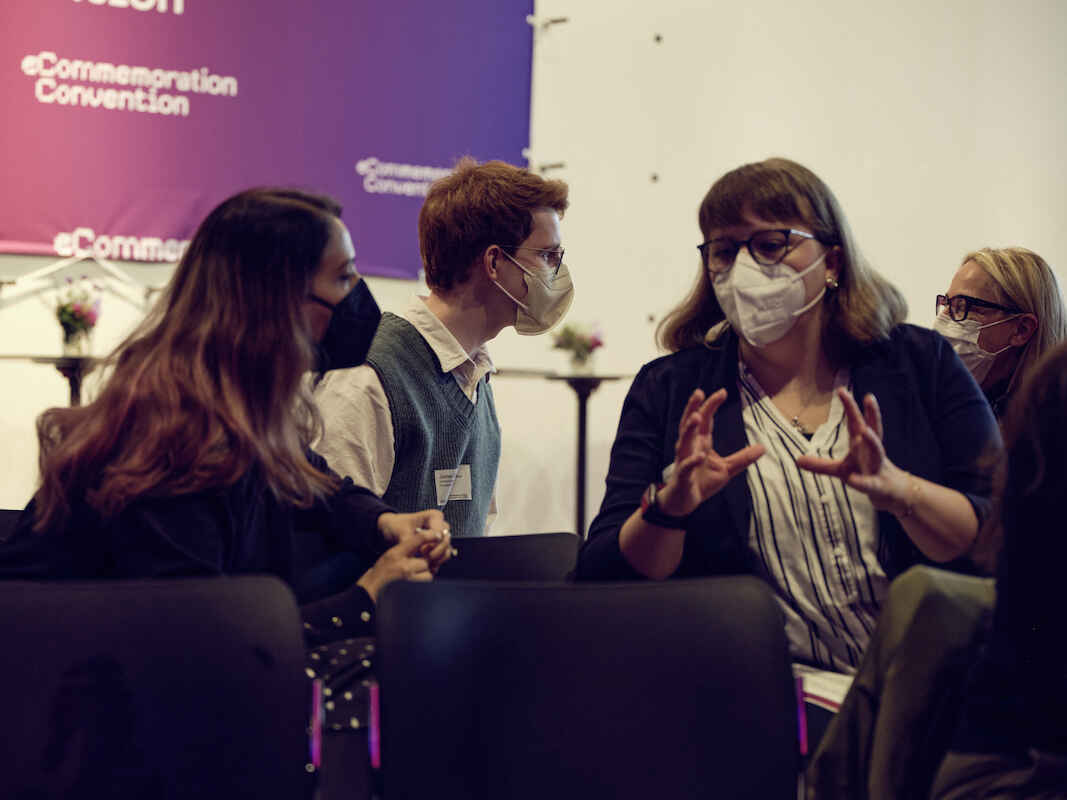
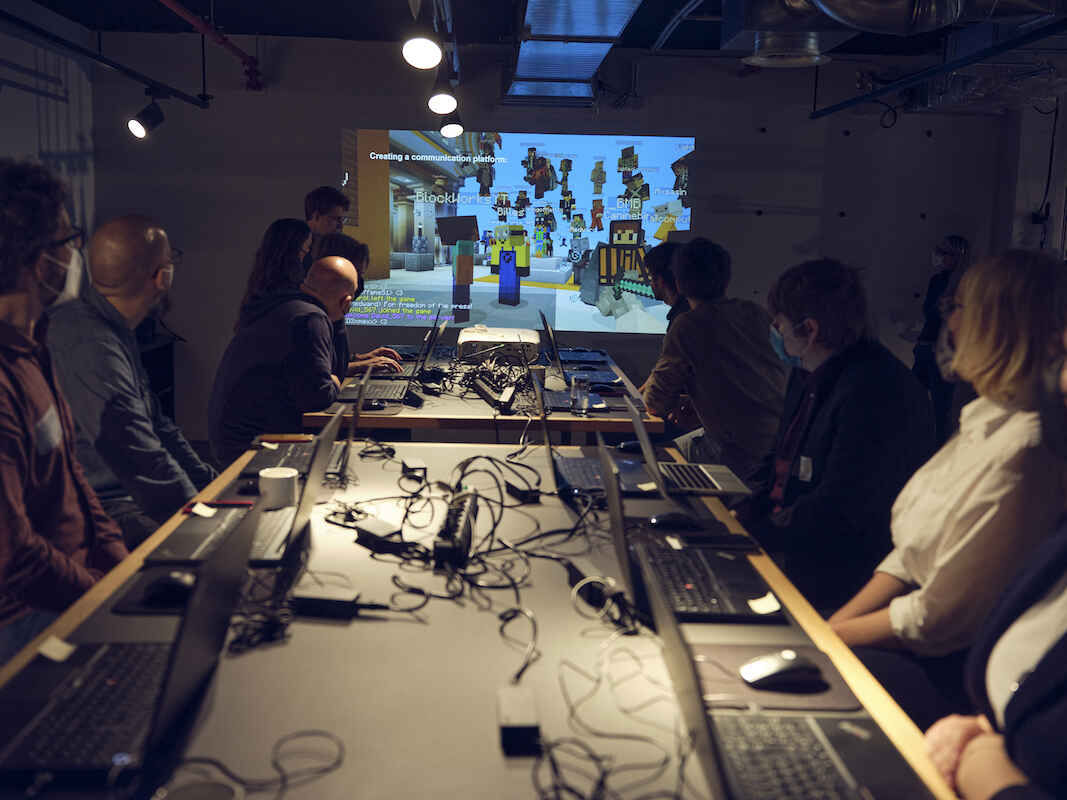
Let’s discuss, let’s play, let’s create!
The panel discussion on „Virtual Memory? Holocaust Remembrance in the Digital Age“ was the opener for our second day. Our moderator and senior lecturer Victoria Walden led the discussion between Director of the Arolsen Archives Floriane Azoulay and historian Kees Ribbens, who is also a researcher at the Institute for War, Holocaust and Genocide Studies in Amsterdam. „Our definition of the past is limited“, said Ribbens, while Walden stated that „We moved from the era of the witness to the era of the user“. Azoulay also added that the link between yesterday and today is consistently important for Generation Z. At the end of the discussion Walden concluded: „Institutions working on history and memory should not just use technologies but shape them.“
After this warm-up the attendees had the opportunity to either join James Delaney from the Block by Block Foundation and build their own „uncensored museum“ in Minecraft – or they could join speakers Iris Groschek and Daniel Cartwright from Gedenkstätte Neuengamme, who explained how TikTok can be used to educate a young audience about the Holocaust.
Afterwards we hosted a live gaming session in cooperation with the Foundation for Digital Games Culture, including exclusive insights into Paintbucket’s newest and yet unreleased project „The Darkest Files“. While Christian Huberts was in charge of playing the game for the audience, Jörg Friedrich from Paintbucket Games and journalist Marcus Richter discussed the role of Esther Katz, a young prosecutor that investigates real Nazi crimes in post-World War II Germany.
After extensively touring the gaming- and VR-stations the final panel took place. James Delaney, Jörg Friedrich and Marcus Richter talked about „Gaming the Past – Do Games Change the Rules of Remembrance?“. Friedrich suggested that games are remarkable because they „can put you into dilemmas“, i.e. games trigger emotions other technology cannot reach, as you need to „make decisions“ as a player. But which new potentials of remembrance do games offer? Again Friedrich has an answer to that: „I sit here as a game developer, together with historians, so things are changing. I can learn from you, you can learn from me“. And Richter adds: „There are no rules of remembrance that are written in stone“.
This year’s eCommemoration Convention that, for the first time, took place as a physical event did exactly that. It brought together international guests for an interdisciplinary exchange, sharing their expertise and finding answers to these new questions about history inspired by new generations and new technologies.
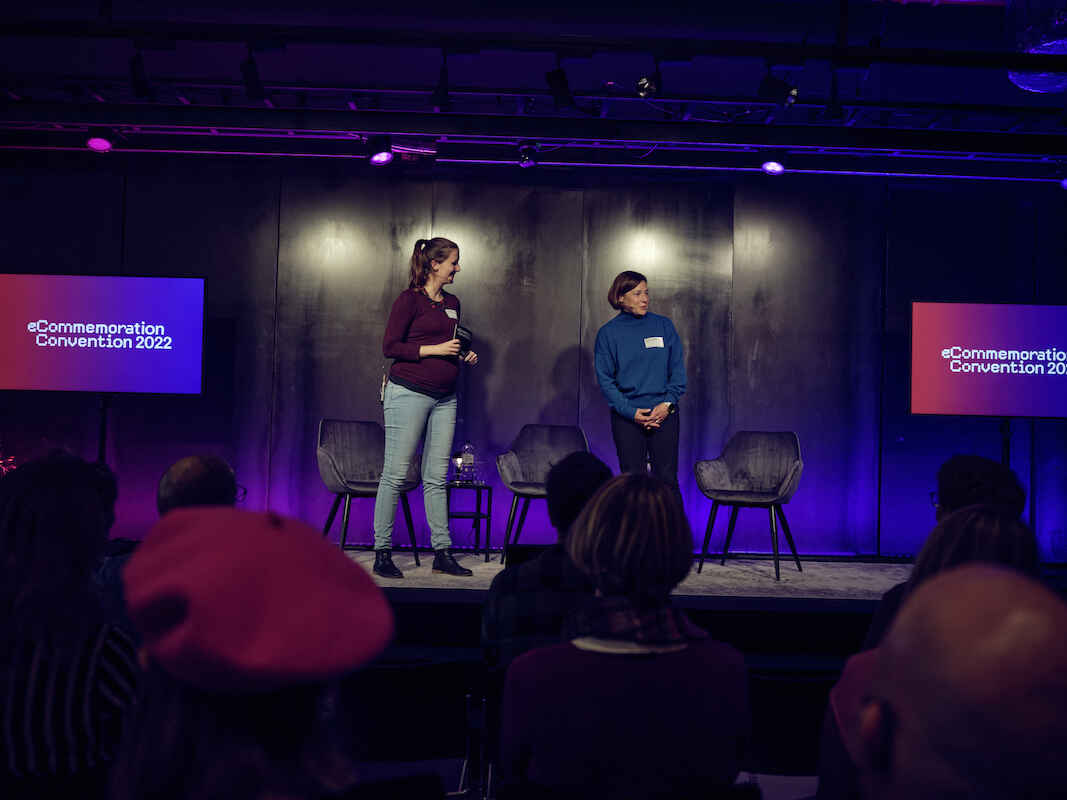
Photos: Benjamin Pichelmann 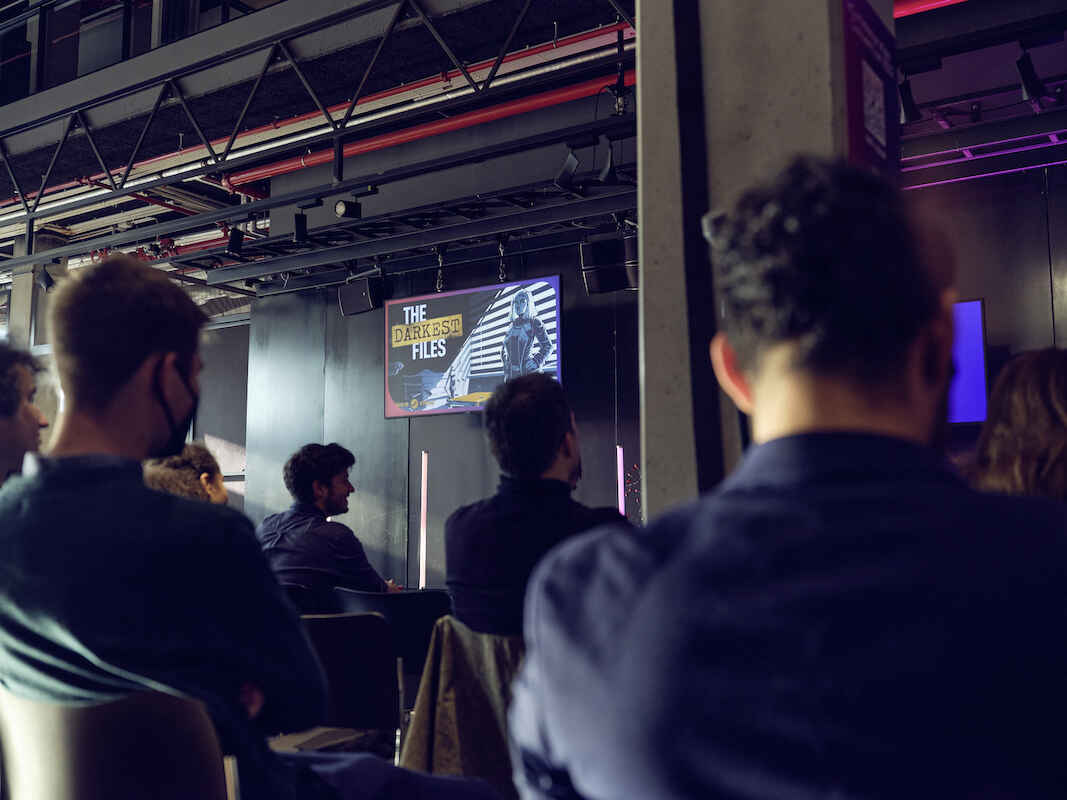
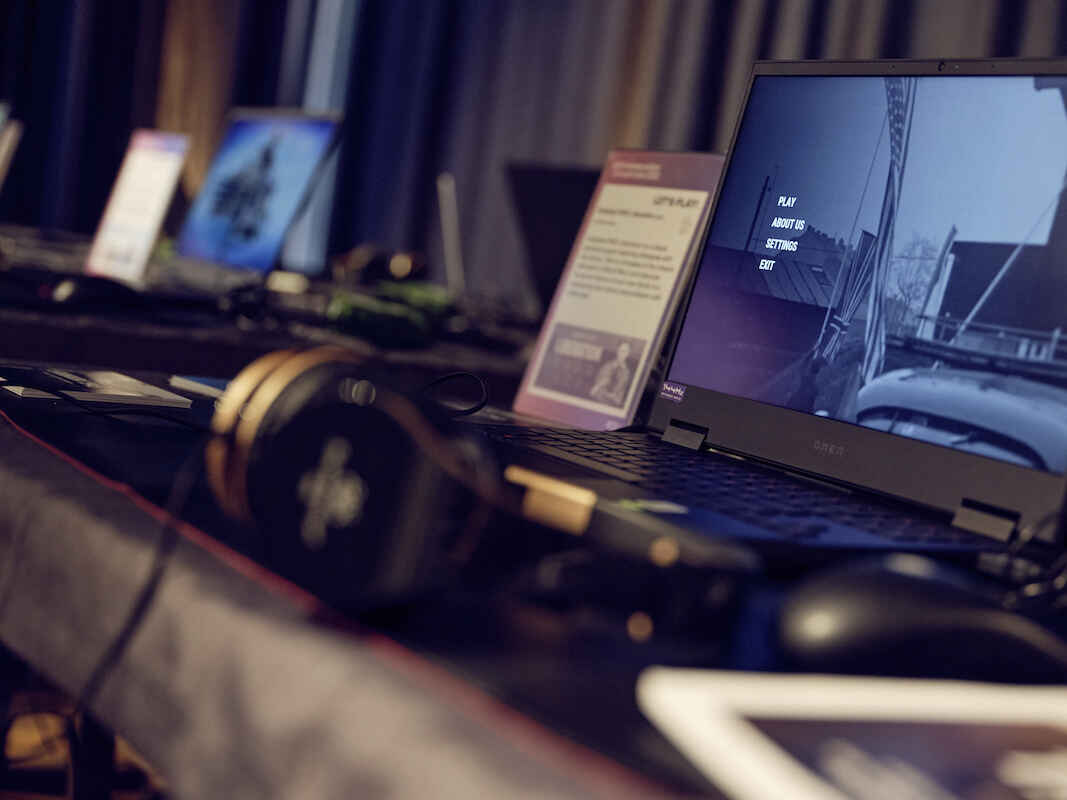
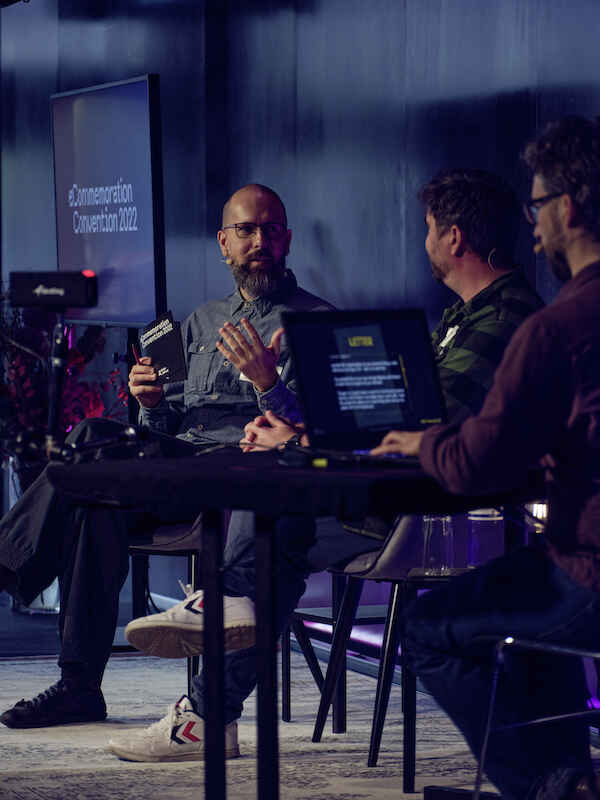
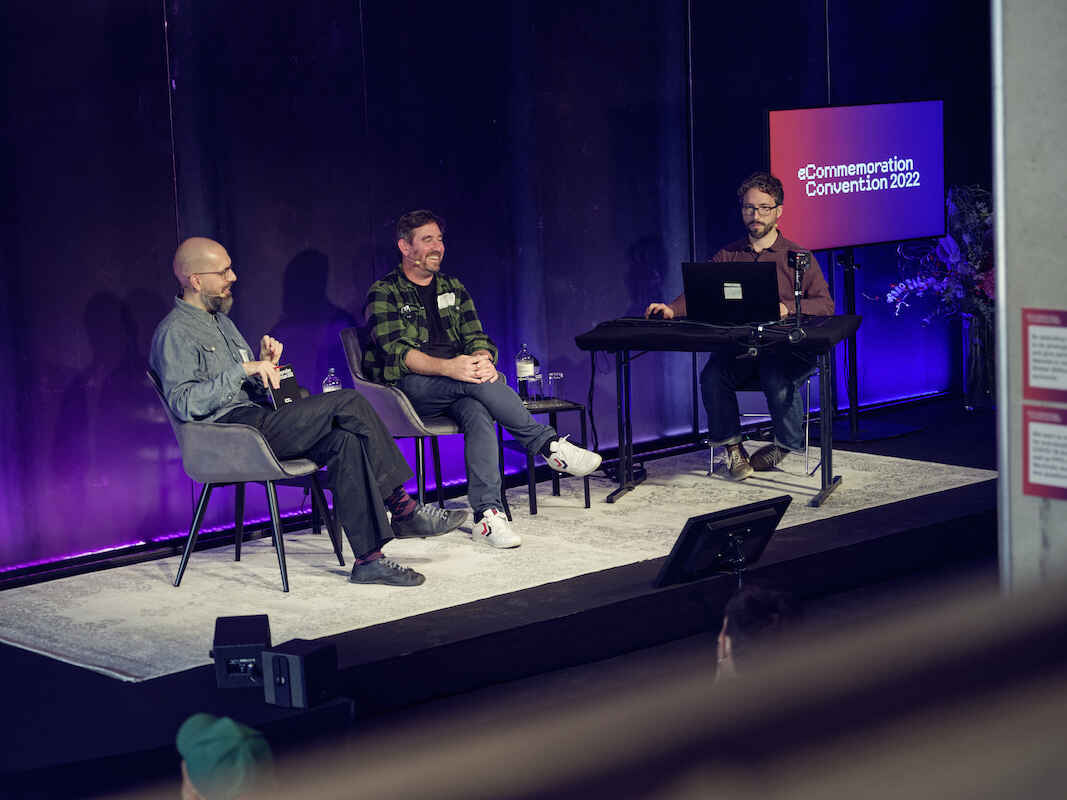
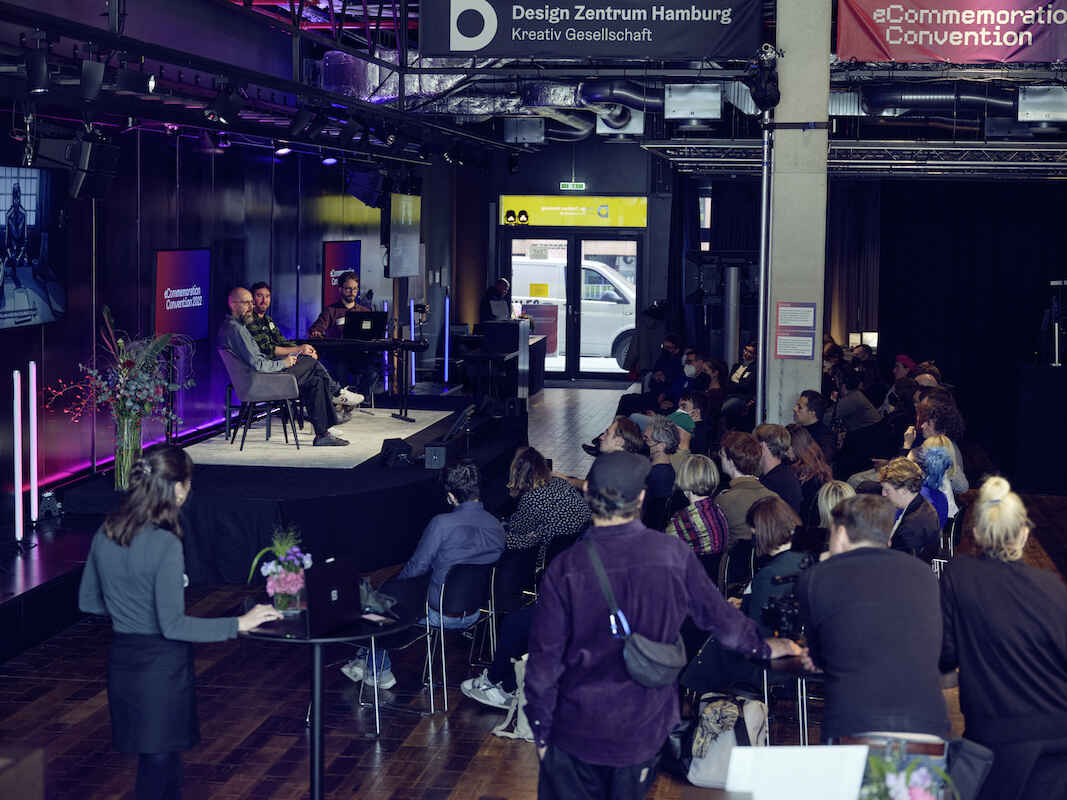
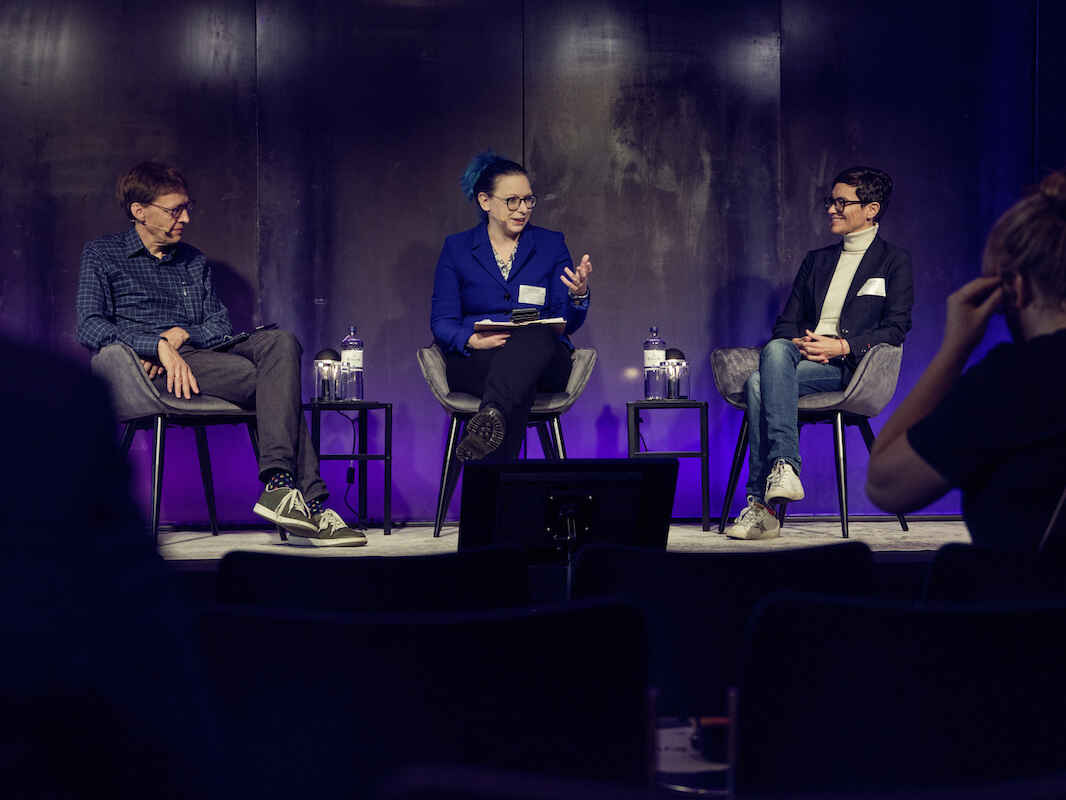
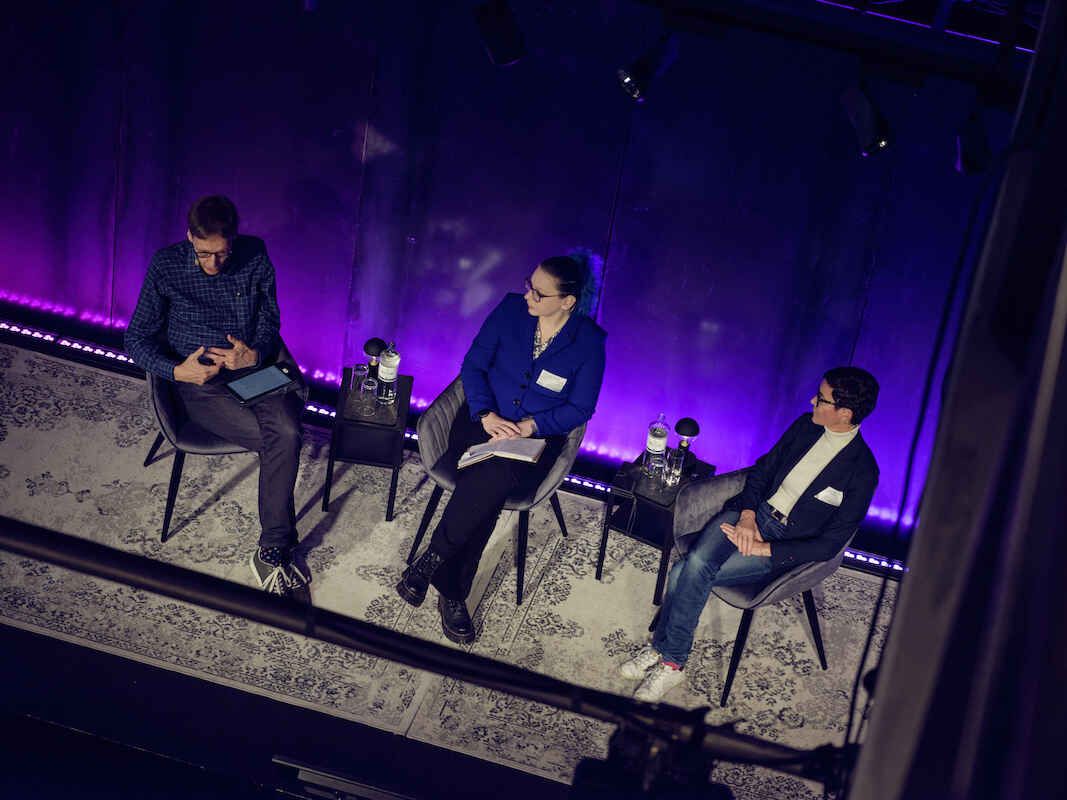
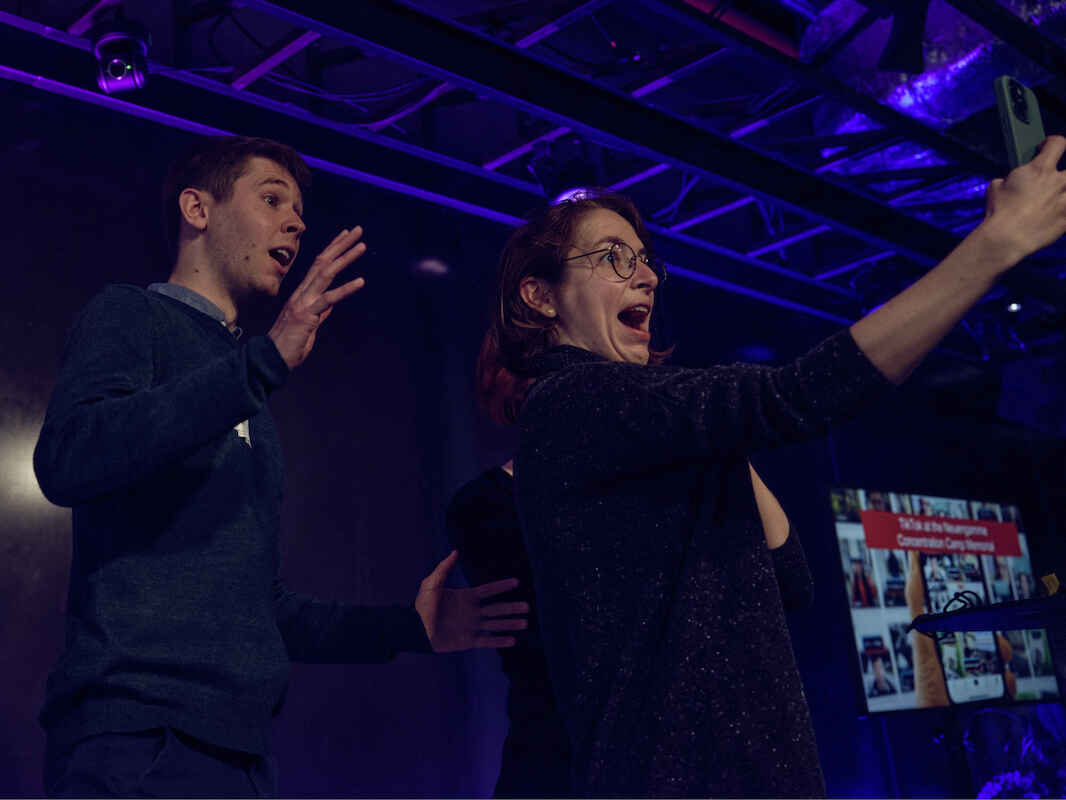

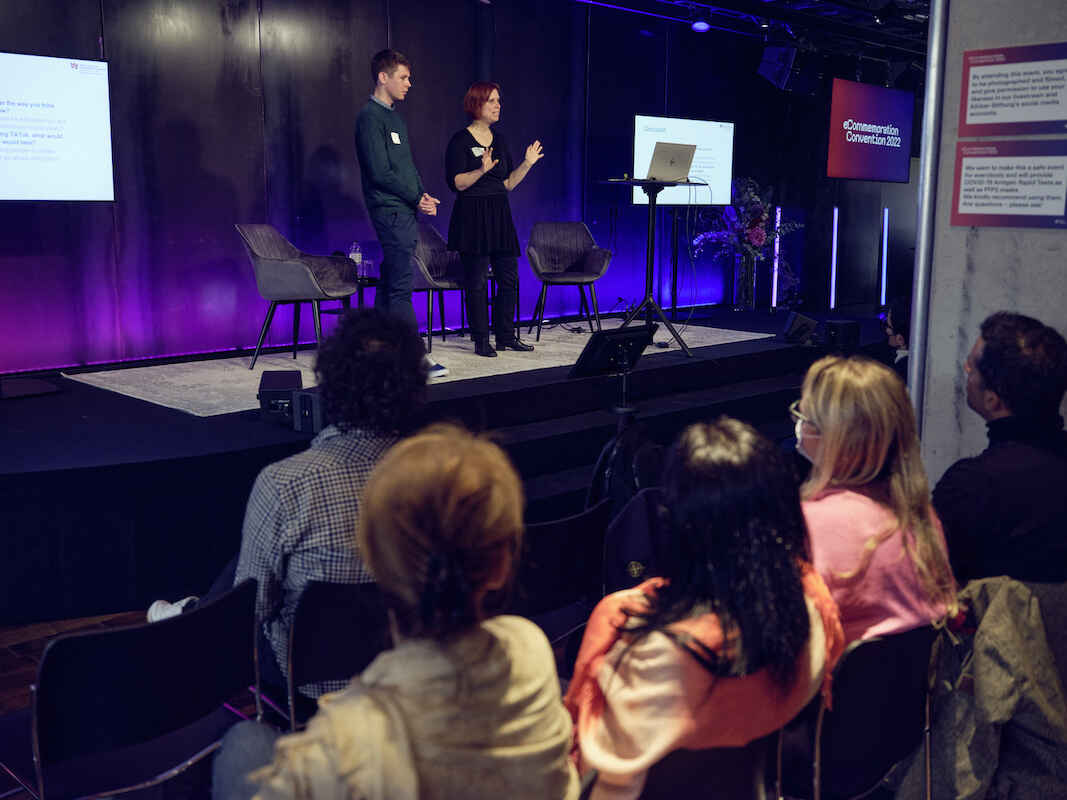
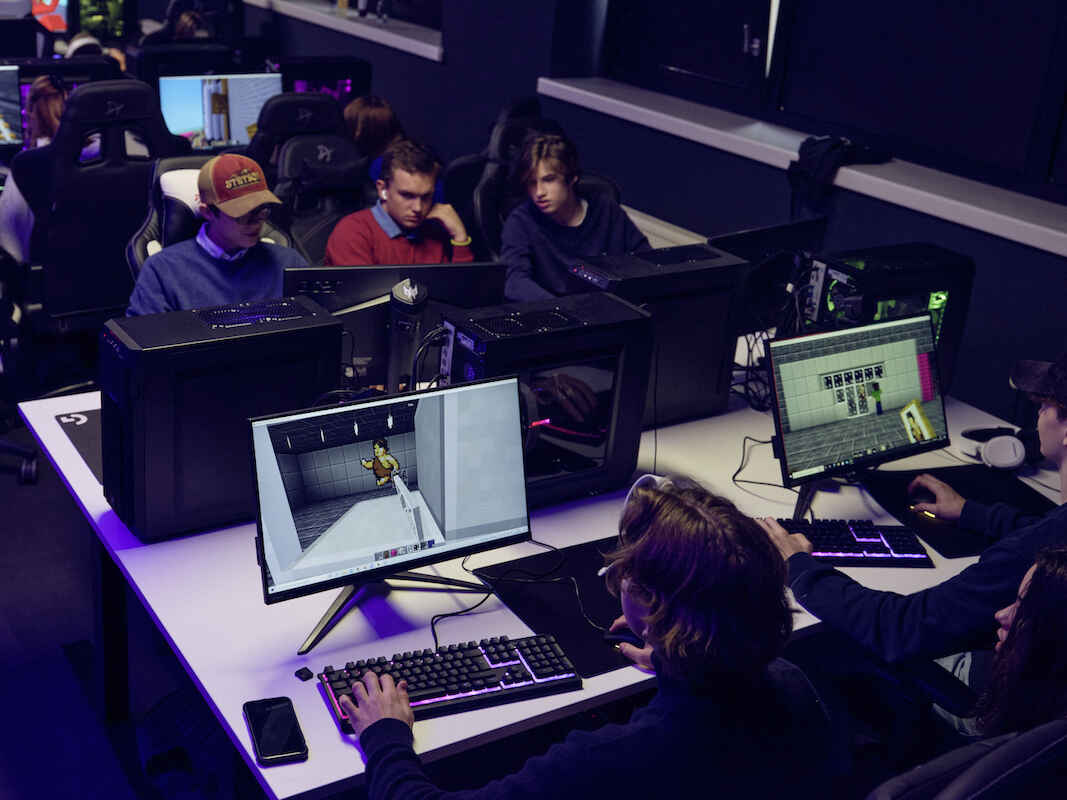
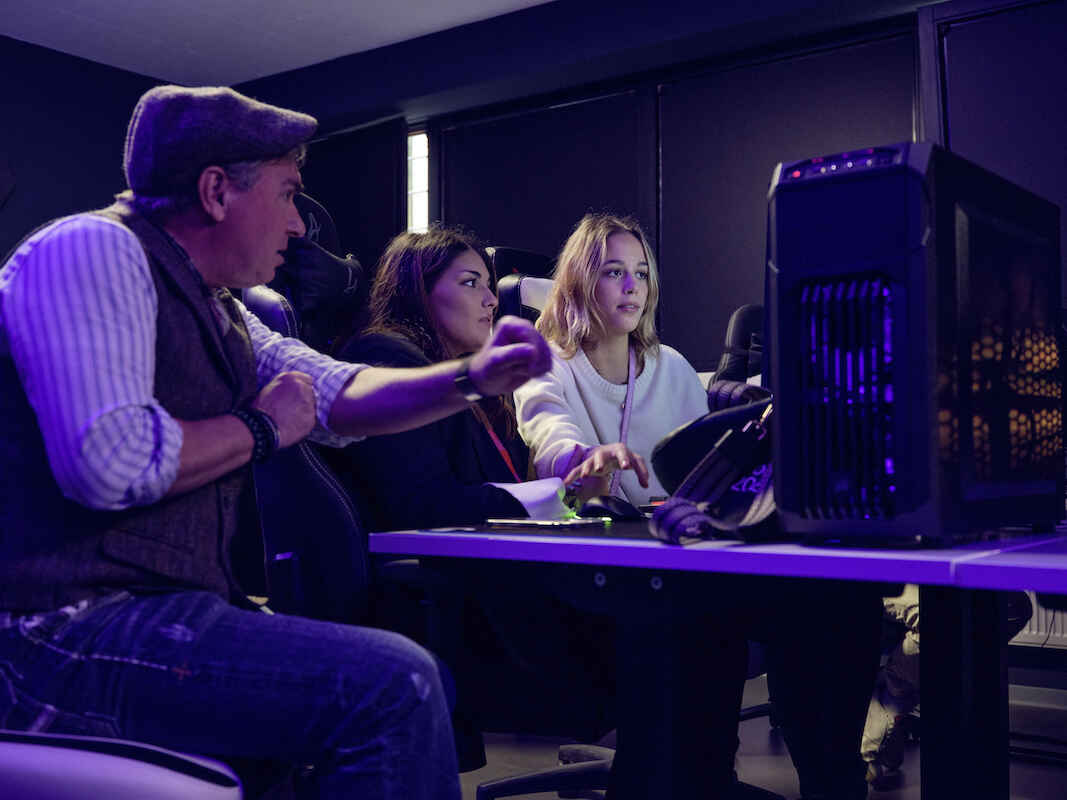
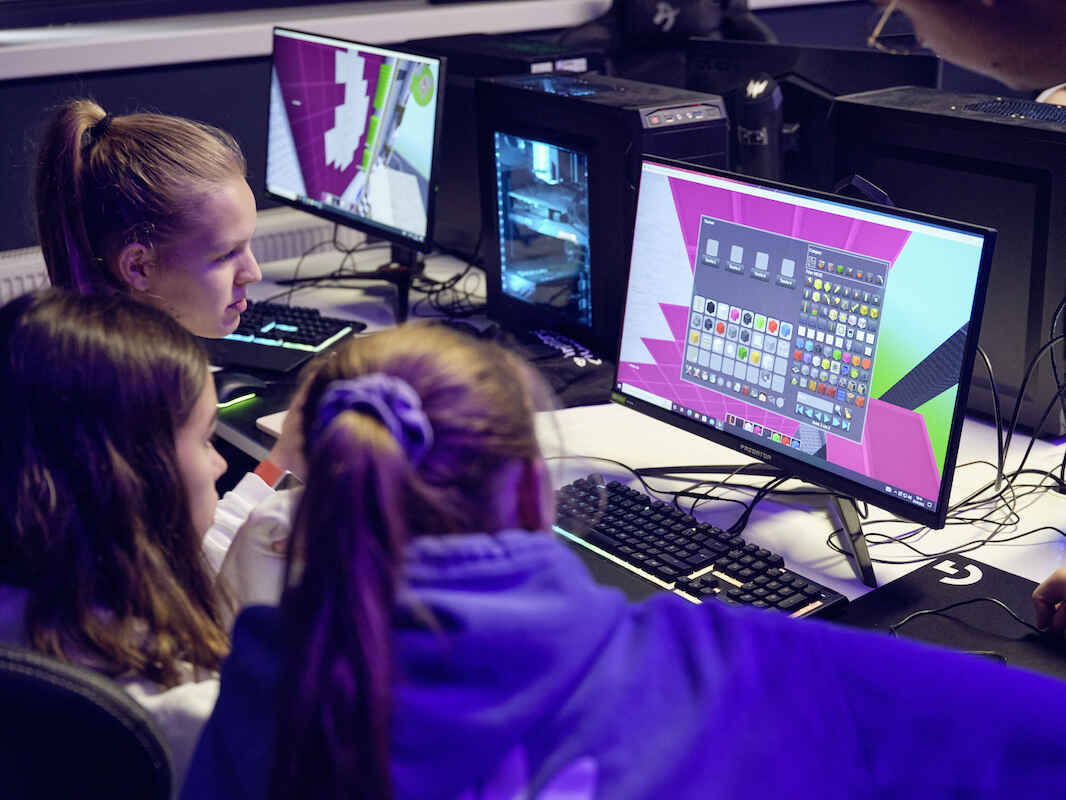
Session Details
Youth-Workshop: Pixel History (not open to public) – 29 Sept, 10am
Before our convention officially starts, we are hosting a workshop for young people: Why and what do we remember? Who decides what should be remembered and what not? In Minetest, we look at a pixelated memorial with you, discuss it and then you decide what to do with it, building and designing in a pixel word.
The workshop is organised by Körber-Stiftung in cooperation with the Foundation for Digital Games Culture and in collaboration with Initiative Creative Gaming e.V. and will take place at Playbay eSport Center, Hamburg.
Workshop Moderators:
- Kemal Amat, Initiative Creative Gaming e.V.
- Thilo Lübker, Initative Creative Gaming e.V.
- Nico Nolden, Public Historian
History, Technology, Reconciliation – Crossing Borders and Divides with XR – 29 Sept, 5pm
VR exhibition and best practice presentations and discussions
Speakers:
- Saadia Gardezi (Project Dastaan): VR project and XR History Award Winner 2022 “Child of Empire”
- Matthias Leitner (Bayrischer Rundfunk): VR-Chat-Project „Munich 72“
- Kyle Marais (Lo-Def Film Factory):VR project “Subterranean Imprint Archive”
Facts and fiction – History on Social Media
(Panel discussion) – 29 Sept, 7pm
Instagram, Reddit, Podcasts: Digital content about history has many followers. But can social media contribute to sharing stories from marginalised voices? How do social media formats deal with the blurry line between fact and fiction? Can digital tools reach audiences beyond people already interested in history? And what exactly does good history communication entail?
We will discuss how digital and social media can be used to share more diverse stories and which roles historians and artists can and should play to provide context, – advancing how history is portrayed and perceived in our societies.
Speakers:
- Greg Jenner, Public Historian, Author and Broadcaster, Host of BBC podcast “You’re Dead to Me“
- Eline Jongsma, Jongsma + O’Neill Creative Storytelling Studio
- Kel O’Neill, Jongsma + O’Neill Creative Storytelling Studio
Moderator:
- Charlotte Jahnz, Historian
Virtual Memory? Holocaust Remembrance in the Digital Age
(Panel discussion) – 30 Sept, 10am
AR, AI, and Social Media – digital technologies shape the way we commemorate the Holocaust today. But can technology facilitate more inclusive remembrance? How does digital media influence Holocaust education? In what ways can digital tools change the way we commemorate the victims of Nazi persecution? Can digital tools help expose and access complex layers of history?
Looking at these questions from an international perspective, we will discuss the profound impact immersive technology has on Holocaust commemoration and education.
Speakers:
- Floriane Azoulay, Director Arolsen Archives
- Kees Ribbens, NIOD Institute for War, Holocaust and Genocide Studies & Erasmus University Rotterdam
Moderator:
- Victoria Walden, Digital Holocaust Memory
Let’s create an uncensored museum? History in Minecraft
(Workshop) – 30 Sept, 11.15am
National echo chambers and limited narratives often dominate how the past is remembered. Marginalised and oppressed voices were and still are often invisible in museums, monuments and collective places of memory. In this workshop we want to explore how we can use Minecraft, one of the world’s most successful computer games, to create an uncensored museum – an inclusive space for diverse voices and stories, which have previously been silenced.
How can we use Minecraft as an inclusive space of memory? How can we create a safe space for diverse stories? How can we ensure that our uncensored museum is based on facts and leaves no room for misinformation?
Workshop host:
- James Delaney, Block by Block Foundation
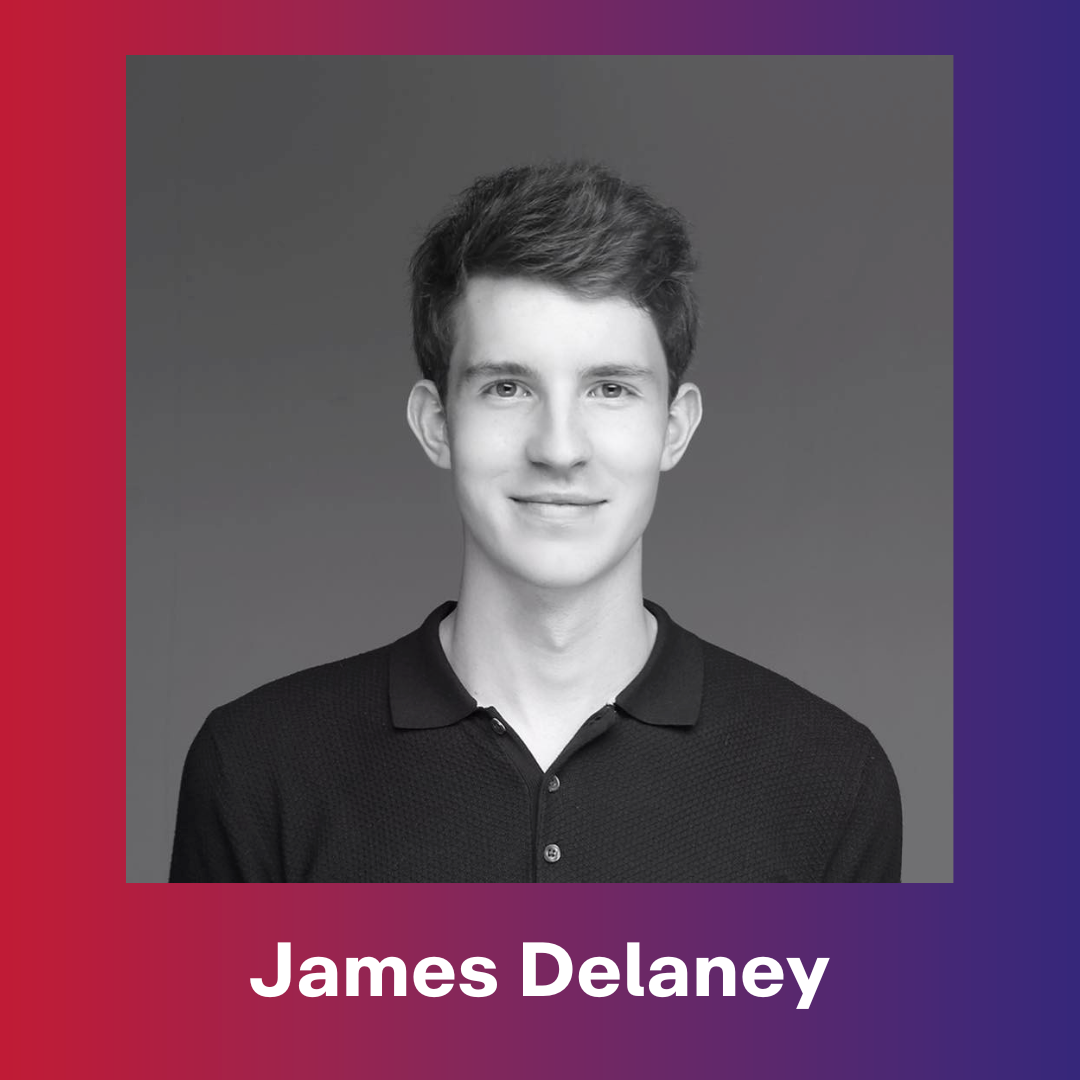
Serious TikTok? History in under 60 Seconds
(Presentation and Discussion) – 30 Sept, 11.15am
TikTok, Youtube Shorts, Instagram Reels, – short videos are on the rise and have evolved from a tiny niche format for teen content focused on dancing and lip-syncing to a media format, where increasingly serious topics such as politics, identity and history are discussed. More and more organisations are also using these formats to convey history content.
In this session, we will get exclusive insights into how the Neuengamme Concentration Camp Memorial uses TikTok: What new possibilities does TikTok open up to address a younger audience? What opportunities and challenges does a 15-30 second format of historical storytelling offer?
Speakers:
- Iris Groschek, KZ Gedenkstätte Neuengamme
- Daniel Cartwright, former volunteer and TikToker at KZ Gedenkstätte Neuengamme
Let’s play: Live Gaming – 30 Sept, 2.15pm
In cooperation with the Foundation for Digital Games Culture
Speakers:
- Jörg Friedrich, Paintbucket Games
Moderator:
- Marcus Richter, Journalist, Moderator and Podcaster
Gameplay:
- Christian Huberts, Foundation for Digital Games Culture
Let’s explore, play & connect: Touring the Gaming- an VR-Stations –
30 Sept, 3.45pm
VR experiences:
- Child of Empire (Project Dastaan)
- Munich 72 (Bayerischer Rundfunk)
- The Subterranean Imprint Archive (Lo-Def Film Factory)
Games:
- 11-11 Memories Retold (Bandai Namco Entertainment)
- Attentat 1942 (Charles Games)
- Discovery Tour by Assassin’s Creed (Ubisoft)
- Minecraft (Mojang Studios)
- Path Out (Causa Creations)
- Svoboda 1945: Liberation (Charles Games)
- The Darkest of Files (Paintbucket Games)
- Through the Darkest of Times (Paintbucket Games)
In addition to games and VR experiences, there will also be the opportunity to get insights into the Arolsen Archive’s #everynamecounts.
Gaming the Past – Do Games Change the Rules of Remembrance?
(Panel discussion) – 30 Sept, 5.00pm
Panel discussion in cooperation with the Foundation for Digital Games Culture
Digital games have grown into a complex medium of entertainment and communication popular across borders and generations. Games combine different modes of storytelling, provide rule systems, architectural design with spaces for social interaction. What role do individual players and gaming communities play? Which new potentials of remembrance do games offer? What are the possibilities and limits that games offer to open new perspectives on history, which are inaccessible in non-digital formats?
Looking at these questions from an international perspective, we will discuss the impact of digital games technology on remembrance culture.
Speakers:
- James Delaney, Director of Blockworks/Block by Blocks Foundation
- Jörg Friedrich, Paintbucket Games
Moderator:
- Marcus Richter, Journalist, Moderator and Podcaster
